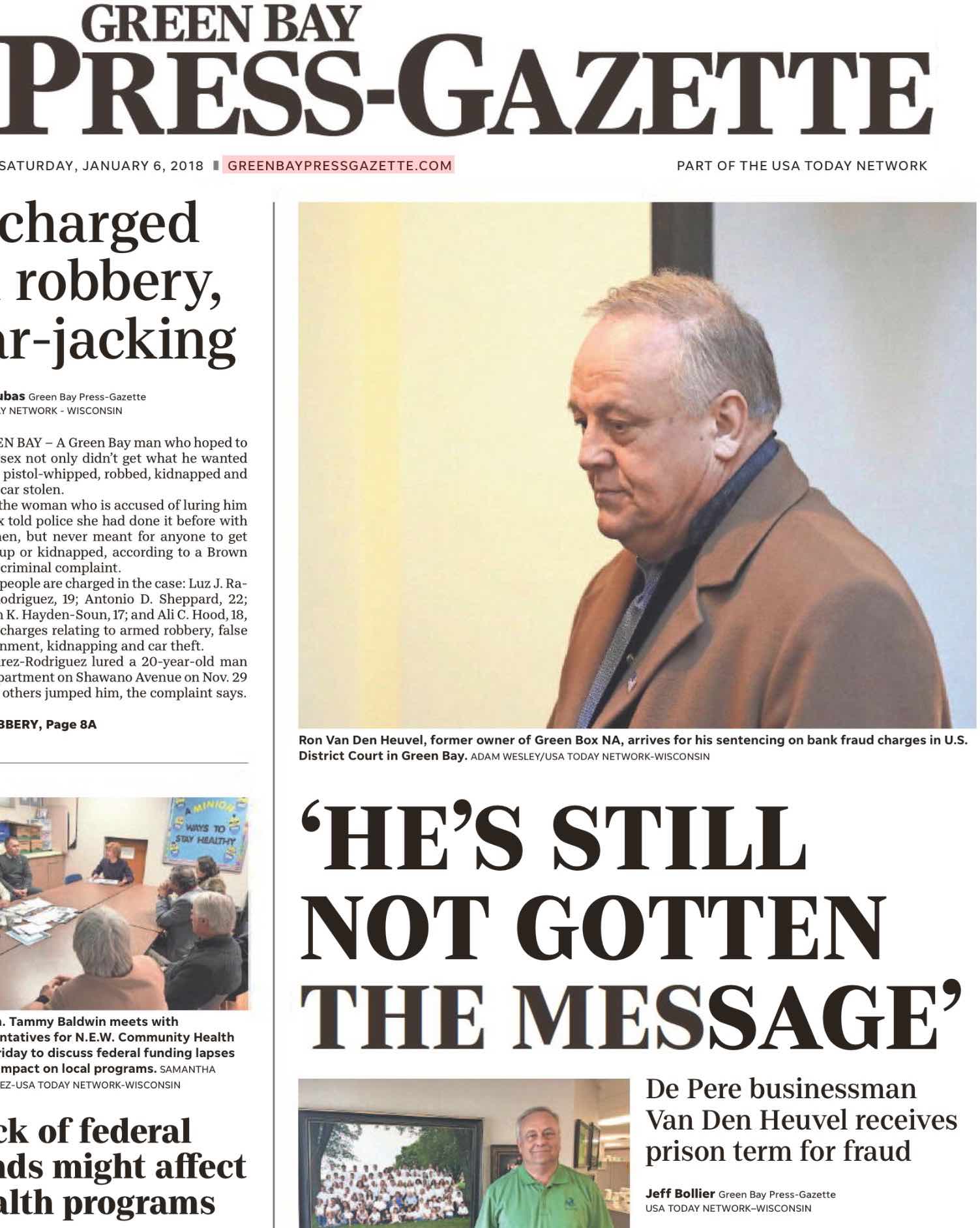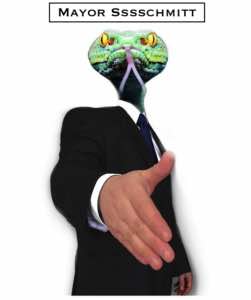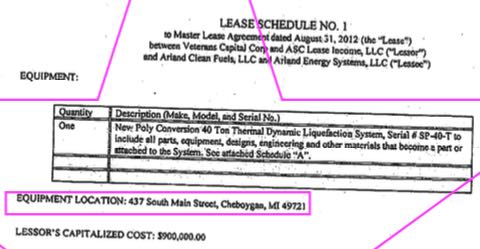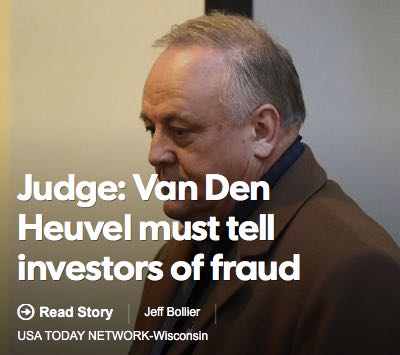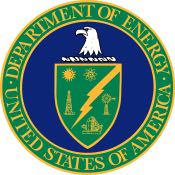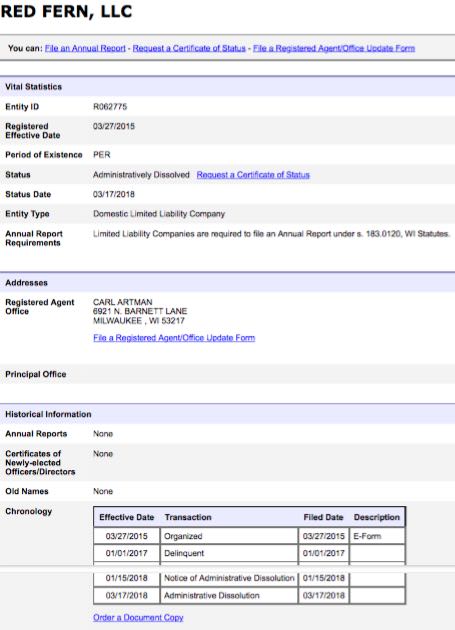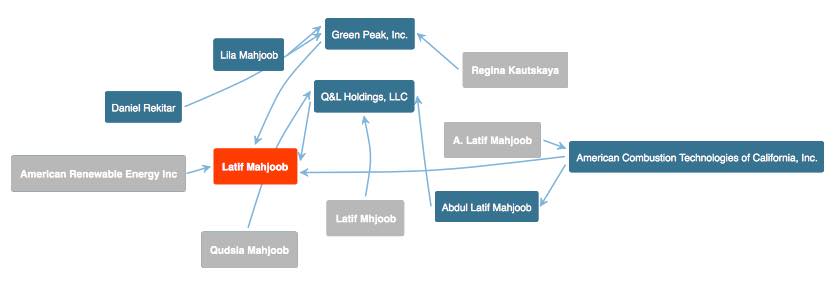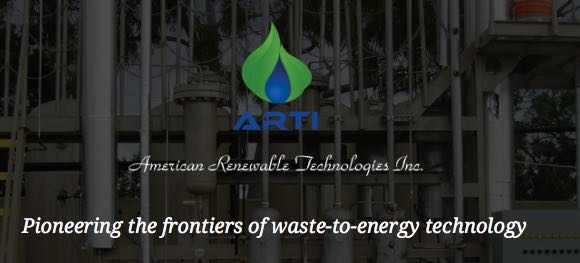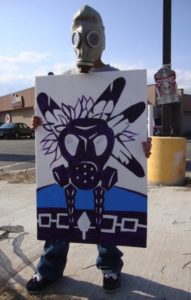TIMELINE PART 13
- CLICK HERE FOR TIMELINE PART 1
- CLICK HERE FOR TIMELINE PART 2
- CLICK HERE FOR TIMELINE PART 3
- CLICK HERE FOR TIMELINE PART 4
- CLICK HERE FOR TIMELINE PART 5
- CLICK HERE FOR TIMELINE PART 6
- CLICK HERE FOR TIMELINE PART 7
- CLICK HERE FOR TIMELINE PART 8
- CLICK HERE FOR TIMELINE PART 9
- CLICK HERE FOR TIMELINE PART 10
- CLICK HERE FOR TIMELINE PART 11
- CLICK HERE FOR TIMELINE PART 12
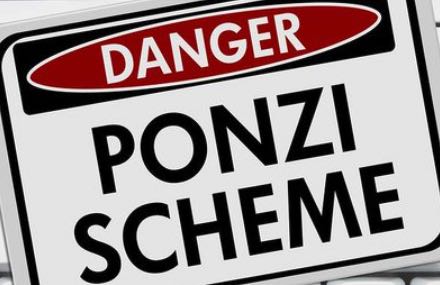
![]()
![]() 01/02/18 : WLUK – Ron Van Den Heuvel wants to withdraw guilty plea in bank fraud case
01/02/18 : WLUK – Ron Van Den Heuvel wants to withdraw guilty plea in bank fraud case
After two motions to delay the sentencing were denied by Judge William Griesbach, Van Den Heuvel’s attorney filed a motion Tuesday to withdraw his plea, and requested a hearing. …
At the October plea hearing … Van Den Heuvel was … admonished by Judge Griesbach at one point, who told Van Den Heuvel that if the guilty plea was accepted, he couldn’t later argue he was innocent.
- January 2, 2018 Defendant’s Motion to Vacate Plea, U.S. District Court, Eastern District of Wisconsin, Case No. 16-CR-64, United States of America v. Ronald H. Van Den Heuvel
- January 2, 2018 Defendant’s Memorandum in Support of Motion to Vacate Plea, U.S. District Court, Eastern District of Wisconsin, Case No. 16-CR-64, United States of America v. Ronald H. Van Den Heuvel
- January 2, 2018 Declaration of FDIC Special Agent Sara Hager w/ Exhibits A–C, U.S. District Court, Eastern District of Wisconsin, Case No. 16-CR-64, United States of America v. Ronald H. Van Den Heuvel
- January 2, 2018 United States’ Sentencing Memorandum, U.S. District Court, Eastern District of Wisconsin, Case No. 16-CR-64, United States of America v. Ronald H. Van Den Heuvel
First, [Ron] Van Den Heuvel’s offense was highly planned and elaborately deceitful. Van Den Heuvel was a sophisticated actor who knew how banks operate, having formed numerous business entities, obtained loans from various banks, and even served on the board of directors for a bank. …
Second, the size, scope, and complexity of Van Den Heuvel’s offense compels significant consequences. Through the use of straw borrowers, Van Den Heuvel obtained no fewer than nine additional loans, totaling over $1 million. … And, Van Den Heuvel went to considerable lengths to conceal that he was actually behind the loans. … This was a long-term, calculated scheme to deceive the bank.
Third, Van Den Heuvel repeatedly manipulated and abused the trust of vulnerable people in his life. Van Den Heuvel put forward not only his business associate Steve Peters and family friend William Bain to obtain loans from Horicon Bank. Van Den Heuvel also took advantage of Julie Gumban, the nanny for his children. … As a live-in nanny, Gumban was dependent upon the Van Den Heuvels for food, shelter, and wages. … The Van Den Heuvels exploited Gumban’s vulnerable position by using her credit cards and convincing her to take out a loan at Horicon Bank. … Van Den Heuvel also roped in his administrative assistant Deb Stary, a subordinate who likely felt compelled to follow her boss’s orders. … And Van Den Heuvel involved his wife, who helped secure two loans for KYHKJG, LLC, and the loan to Gumban, and as a result, was indicted as a co-conspirator. … That was not the last time Van Den Heuvel would enlist his family in fraud. In 2013, Van Den Heuvel offered a job to his son-in- law [Patrick Hoffman] but did not pay him for several months of work. … Van Den Heuvel then convinced his son-in-law to approach several banks with forged pay stubs, which falsely inflated his salary, to seek loans on Van Den Heuvel’s behalf. … Van Den Heuvel’s claim to be a selfless family man simply does not match reality.
Fourth, contrary to Van Den Heuvel’s claim to be driven by “a desire to create and/or maintain functioning corporations,” his offense was driven by greed. Witnesses consistently described the Van Den Heuvels as living a high-end lifestyle that included:
• A riverfront, five-bedroom residence worth at least $1.9 million
• A second home in Florida
• Luxury automobiles, such as two Cadillac Escalades
• A live-in nanny
• Private schools for their children
• Country club memberships
• Frequent dining at expensive restaurants
• Annual trips to Las Vegas
• A private jetThe Van Den Heuvels lived that life even as his businesses failed to generate any significant income. … Earlier in his career, Van Den Heuvel may well have been a successful businessman, able to support that life and engage in philanthropy. Tellingly, most of the charitable efforts Van Den Heuvel cites date from the 1990s. … But by the mid-2000s, Van Den Heuvel’s fortunes had changed, and he was not generating much income. … Rather than scale back his expenses, Van Den Heuvel sought to maintain the image by borrowing money. To keep just ahead of creditors, he kept on borrowing and then pressed others to borrow for him. All the while, Van Den Heuvel continued living far beyond his means, projecting a false image of success and philanthropy. For example, Van Den Heuvel cites his work for the March of Dimes. … Although that service is admirable, at least one of Van Den Heuvel’s contributions to the March of Dimes came from investors’ funds that he represented would be used to promote his Green Box business plan. See Sara Hager Declaration (Jan. 2, 2018). Thus, Van Den Heuvel’s offense was quite like a Ponzi scheme, seeking loan after loan to maintain a mirage of success.
Finally, this offense is especially serious because it targeted a federally insured financial institution. … Congress … provided stiffer sentences for frauds that affect financial institutions. … Van Den Heuvel has thus made a practice of manipulating financial institutions for his personal gain. This makes Van Den Heuvel’s fraud more serious than frauds against other types of victims. If anything, criminal history category I understates Van Den Heuvel’s criminality. … Many other offenders in criminal history category I are first-time offenders who engaged in a one-off offense. That description does not remotely fit Van Den Heuvel. Thus, the Court should consider that Van Den Heuvel has a long history of manipulating others for his personal gain. …
The need for both specific and general deterrence also supports a term of imprisonment. Van Den Heuvel has shown a disturbing, serial pattern of manipulating others over a long period of years. As noted, several years after the Horicon Bank fraud scheme, Van Den Heuvel attempted to defraud other banks through his son-in-law [Patrick Hoffman]. … A period of incarceration is appropriate to prevent Van Den Heuvel from engaging in fraud and to send him a message that such conduct results in real consequences. Likewise, a significant sentence is necessary to deter others in the community who would be tempted to view banks as opportunities to engage in scams. The potential for general deterrence is increased by the fact that Van Den Heuvel and this case are well known in the Green Bay area. Indeed, a light sentence would send the troubling message that crime pays.
01/03/18 : WLUK – Prosecutors oppose Van Den Heuvel’s request to withdraw guilty plea
After two motions to delay the sentencing were denied, Van Den Heuvel filed a motion Tuesday, asking to withdraw his plea.
But in a 14-page response filed Wednesday, federal prosecutors call the motion “delay tactics and gamesmanship” and say it should be denied.
Prosecutors point out Judge William Griesbach had a lengthy conversation with Van Den Heuvel about the his [sic] plea, it being voluntary, and the evidence being used as the basis for the conviction. Van Den Heuvel agreed on all points, prosecutors note.
 January 3, 2018 United States’ Opposition to Motion to Vacate Plea, U.S. District Court, Eastern District of Wisconsin, Case No. 16-CR-64, United States of America v. Ronald H. Van Den Heuvel
January 3, 2018 United States’ Opposition to Motion to Vacate Plea, U.S. District Court, Eastern District of Wisconsin, Case No. 16-CR-64, United States of America v. Ronald H. Van Den Heuvel
- Included in the PDF of the U.S.’s Opposition to Motion to Vacate Plea is a full transcript of the Tuesday, October 10, 2017 Change of Plea Hearing [26 pages]
By now claiming to have pleaded guilty involuntarily, Van Den Heuvel is stating, in effect, that he perjured himself at the plea colloquy.
- January 3, 2018 United States’ Opposition to Motion to Adjourn Sentencing, U.S. District Court, Eastern District of Wisconsin, Case No. 16-CR-64, United States of America v. Ronald H. Van Den Heuvel
 January 3, 2018 Ron Van Den Heuvel’s Renewed Motion to Adjourn Sentencing, U.S. District Court, Eastern District of Wisconsin, Case No. 16-CR-64, United States of America v. Ronald H. Van Den Heuvel
January 3, 2018 Ron Van Den Heuvel’s Renewed Motion to Adjourn Sentencing, U.S. District Court, Eastern District of Wisconsin, Case No. 16-CR-64, United States of America v. Ronald H. Van Den Heuvel
01/04/18 : January 4, 2018 TEXT ONLY ORDER as to Ronald H. Van Den Heuvel DENYING MOTION to Withdraw Plea of Guilty and DENYING MOTION to Adjourn sentencing filed by Ronald H Van Den Heuvel, signed by Chief Judge William C Griesbach on 01/04/2017, U.S. District Court, Eastern District of Wisconsin, Case No. 16-CR-64, United States of America v. Ronald H. Van Den Heuvel [written decision to follow]
- January 4, 2018 Court-appointed Defense Attorney Robert LeBell Motion to Withdraw, U.S. District Court, Eastern District of Wisconsin, Case No. 16-CR-64, United States of America v. Ronald H. Van Den Heuvel
A De Pere businessman will be sentenced as scheduled Friday in a bank fraud case, a judge ruled Thursday – but the defense attorney subsequently asked to withdraw from the case.
Ron Van Den Heuvel has filed three motions to delay the sentencing and one motion to withdraw his guilty plea on a count of conspiracy to commit bank fraud. Federal Judge William Griesbach previously denied two motions to postpone the hearing, and today denied the two most recent motions, according to court records.
After Judge Griesbach entered the order, defense attorney Robert LeBell filed a motion asking to withdraw from the case.
“AS GROUNDS THEREFORE it is maintained that a breakdown in communications has occurred to the extent that further competent representation cannot be provided,” LeBell wrote.
![]()
- January 4, 2018 United States’ Notice of Intent to Withhold Acceptance of Responsibility Recommendation, U.S. District Court, Eastern District of Wisconsin, Case No. 16-CR-64, United States of America v. Ronald H. Van Den Heuvel
The United States of America, by and through its attorneys, Gregory J. Haanstad, United States Attorney, and Matthew D. Krueger, Assistant United States Attorneys, hereby gives notice in advance of sentencing that it no longer recommends that the defendant Ronald Van Den Heuvel receive credit for acceptance of responsibility under U.S.S.G. § 3E1.1.
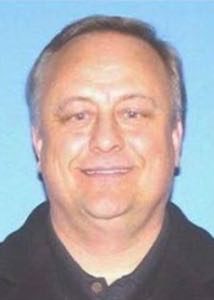 01/05/18 : January 5, 2018 Sentencing Minutes, U.S. District Court, Eastern District of Wisconsin, Case No. 16-CR-64, United States of America v. Ronald H. Van Den Heuvel
01/05/18 : January 5, 2018 Sentencing Minutes, U.S. District Court, Eastern District of Wisconsin, Case No. 16-CR-64, United States of America v. Ronald H. Van Den Heuvel

- FOX 11 WLUK –
Ron Van Den Heuvel sentenced for bank fraud scheme
GREEN BAY (WLUK) – After multiple legal maneuvers failed to delay Friday’s hearing, Ron Van Den Heuvel was sentenced to three years in federal prison and three years supervised release in a bank fraud scheme.
The owner of De Pere-based Green Box was also ordered to pay $316,445.79 in restitution. …
Judge William Griesbach noted there wasn’t one lapse of judgement; there were seven loans which used straw borrowers to funnel him money. He called Van Den Heuvel’s actions “flagant fraud” which required punishment.
Van Den Heuvel, his wife and Paul Piikkila, who worked at Horicon Bank, were charged with conspiracy to commit bank fraud after illegally obtaining loans for Van Den Heuvel’s business. Piikkila agreed to testify in the case and reached a plea deal. He will be sentenced Feb. 7. The charges against Kelly Van Den Heuvel were dismissed as part of the plea deal with her husband.
Ron Van Den Heuvel pleaded guilty to one count – [which is why] more than a dozen other charges were dismissed – at a hearing in October. …
In the weeks leading up to Friday’s hearing, Van Den Heuvel and his attorney filed three motions to the delay the sentencing, arguing newly discovered evidence would have an impact on the case. Also, Van Den Heuvel tried to withdraw his plea, and his attorney tried to leave the case. Judge Griesbach met privately in chambers with Van Den Heuvel and his attorney for more than 20 minutes Friday before the judge instructed attorney Robert LeBell to finish the hearing today.
Judge Griesbach noted Van Den Heuvel did not own up to his actions, saying there was “little hope of rehabilitation” when he isn’t honest with himself about what he did. …
He also faces prosecution in a second case, which is still pending. A scheduling conference will be held March 16 [2018]. In that case, prosecutors allege Van Den Heuvel raised more than $9 million from investors, including the Wisconsin Economic Development Corp., for his company, Green Box, but used some of the money on personal items, including a car and Packers tickets. If convicted of all 14 counts, he faces up 240 years in prison and more than $2.5 million in fines.

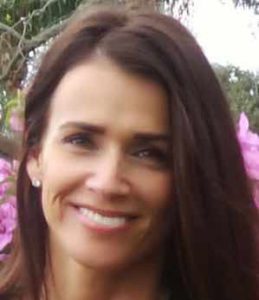 Green Bay Press-Gazette –
Green Bay Press-Gazette –
Ron Van Den Heuvel sentenced to 3 Years in federal prison on bank fraud charges
by Jeff Bollier
GREEN BAY – De Pere businessman Ron Van Den Heuvel will spend three years in prison for using straw borrowers to defraud Horicon Bank and three credit unions.
U.S. District Court Judge William Griesbach on Friday sentenced Van Den Heuvel, 63, on one count of conspiracy to commit bank fraud. Van Den Heuvel will also serve three years of supervision after his release from prison. He will also be required to pay $316,445 in restitution to Horicon Bank.
Griesbach sentenced Van Den Heuvel after denying his request to delay Friday’s hearing for reasons that included a claim that new evidence would exonerate Van Den Heuvel and his attorney’s request to withdraw as counsel.
The judge chastised Van Den Heuvel for trying to delay the 2-year-old case at the last minute.
“Intent to defraud was part of your plea (to the charge),” Griesbach said. “I cannot accept that you lied under oath simply to advance the proceedings. It’s gamesmanship. It will not be tolerated.”
According to court records, Van Den Heuvel worked with Horicon Bank loan officer Paul Piikkila to obtain more than $1 million in loans for Green Box, a recycling company he owned at the time, under the names of Van Den Heuvel’s employees [Steven Peters] and a former relative [William ‘Bill’ Bain]. Prosecutors portrayed the employees and relative as straw borrowers who did not receive the money and were not expected to repay it.
Horicon Bank reported losing more than $700,000 as a result of loans that were issued between Jan. 17, 2008, and Sept. 25, 2009.
Van Den Heuvel claimed one straw borrower, [Julie Gumban] his [Phillipine] live-in housekeeper, reinvested tens of thousands of dollars she earned from investments in his companies. But prosecutors pointed out Van Den Heuvel falsified income statements so the nanny could secure a loan and credit cards that Van Den Heuvel used to pay his expenses.
In another case, he made his administrative assistant [Debra Stary, Bill Bain’s sister in law who Ron ‘browbeat into being VP of OSGC’s Nature’s Way Tissue Corp.,] a board member in one of his limited liability companies [Source of Solutions, LLC] one month before she sought a loan for more than $200,000 via Piikkila and Horicon.
Horicon Bank Executive Vice Presidents Allen Schwab and Jay Vanden Boogart testified during the hearing that Van Den Heuvel’s conspiracy worried customers, left prospective employees concerned about working for the company and hurt Horicon’s employees, who own 25 percent of the bank.
“Horicon sustained a substantial loss beyond the amount of restitution,” Schwab said. “We have sustained a reputational loss, especially in the Fox Valley market. Google ‘Horicon‘ and this fraud case comes up. Customers come in to ask about if their investments are safe.”
Piikkila had been told by bank management to no longer loan money to Van Den Heuvel, according to court documents. He has pleaded guilty to his role in the straw borrower scheme and is scheduled for sentencing next month [February 7, 2018].
Done with delays
Van Den Heuvel pleaded guilty in October to the single fraud charge as part of a plea agreement that dismissed 18 other charges. Charges against his wife, Kelly Van Den Heuvel, were also dismissed under the agreement.After rejecting Van Den Heuvel’s attempt to withdraw his plea, Griesbach said a prison term was warranted based on Van Den Heuvel’s continued insistence that he’d done nothing wrong.
He said Van Den Heuvel’s family support, business acumen, his claims of trying to benefit those who borrowed money on his behalf, and his support of local nonprofits made his decision to conspire to defraud banks all the more disturbing.
“Mr. Van Den Heuvel presents himself as a selfless entrepreneur and philanthropist even today,” Griesbach said. “It is a lie. He can’t admit (his role) to himself, his family or this court. He has delayed the proceedings with motions that are frivolous. It tells us he’s still not gotten the message that what he believes is a lie.”
More charges ahead
Van Den Heuvel will be required to report to prison even as a Securities and Exchange Commission fraud case continues in federal court. In that case, Van Den Heuvel has pleaded not guilty to 14 counts in that case of defrauding Green Box investors out of $9 million.Van Den Heuvel [has long claimed to investor victims that he] spent years developing Green Box and its related companies’ system for converting food-contaminated trash and other waste into new paper products, reusable plastics and other materials.
The effort fell apart as financiers, investors and the Wisconsin Economic Development Corp. filed civil lawsuits against Van Den Heuvel and the limited liability companies under which the business was controlled.
Hisprimarycompany[sic] Green Box NA [Green Bay, LLC –– which is just one of many ‘Green Box’ fronts under actual ‘parent’ company Nature’s Choice Tissue Corp. / aka E.A.R.T.H. / aka Reclamation Technology Systems, LLC ––] filed for federal bankruptcy protection in April 2016. According to court documents, [GBNAGB] had less than $50,000 in assets and more than $10 million in debt.A U.S. Bankruptcy Judge dismissed the [Green Box NA Green Bay, LLC] Chapter 11 reorganization case on [December 27, 2017] based on the investors’ inability to restart the business and the court’s inability to identify assets that could be sold to restart the business and repay Van Den Heuvel’s investors.
The creditors can still individually use state and federal laws to try to recoup their losses, the judge wrote.
01/06/18 :
![]()
![]()
![]()
![]()
![]()
![]()
![]()
![]()
![]()
![]()
![]()
![]()
![]()
01/08/18 : WBAY – De Pere Businessman Ron Van Den Heuvel sentenced to federal prison for bank fraud
- January 8, 2018 Order Denying Motions to Vacate Plea, Adjourn Sentencing, and for Withdrawal of Counsel, U.S. District Court, Eastern District of Wisconsin, Case No. 16-CR-64, United States of America v. Ronald H. Van Den Heuvel
…a “package deal” can be improper and unfairly coercive if the government believes the spouse is wholly innocent of the crime charged and used a phony charge to coerce the defendant to plead guilty. …
Here, there is no suggestion that the government did not believe Kelly Van Den Heuvel was guilty of the crimes with which she was charged, and the information contained in the presentence report supports the government’s belief.
 January 8, 2018 Oneida Nation of WI’s Response to Registrant Oneida Indian Nation of NY’s Motion for Suspension of Trademark Cancellation Proceedings, U. S. Patent and Trademark Office Trademark Trial and Appeal Board, Cancellation No. 92066411, Oneida Nation of Wisconsin v. Oneida Indian Nation of New York
January 8, 2018 Oneida Nation of WI’s Response to Registrant Oneida Indian Nation of NY’s Motion for Suspension of Trademark Cancellation Proceedings, U. S. Patent and Trademark Office Trademark Trial and Appeal Board, Cancellation No. 92066411, Oneida Nation of Wisconsin v. Oneida Indian Nation of New York
01/10/18 : Beaver Dam Daily Citizen: De Pere man Ron Van Den Heuvel sentenced to prison for defrauding Horicon Bank
The conspiracy occurred in 2008 and 2009 during which [Ron] Van Den Heuvel held himself out as a successful businessman in the Green Bay area. In January 2008, Van Den Heuvel persuaded Horicon Bank loan officer Paul Piikkila to approve a $250,000 loan to one of Van Den Heuvel’s companies. Thereafter, Horicon Bank officials instructed Piikkila not to loan any additional funds to Van Den Heuvel or his businesses because Van Den Heuvel posed too great a credit risk. To skirt that instruction, Van Den Heuvel and Piikkila arranged a series of loans, totaling more than $1 million to straw borrowers for the benefit of Van Den Heuvel and his business entities. The straw borrowers had no intention of paying back the loans and believed that Van Den Heuvel would be responsible for the loans.
The straw borrowers included Van Den Heuvel’s live-in nanny, who depended upon the Van Den Heuvels for her livelihood. Another straw borrower was Van Den Heuvel’s administrative assistant, whom he named an officer of a limited liability company for the purpose of taking out the loan. The loans generally were not used for the business purposes represented on the loan applications. Van Den Heuvel failed to repay many of the loans. Horicon Bank incurred substantial losses even after trying to recover the collateral pledged for the loans.
01/16/18 :
TUESDAY, 6 PM
JANUARY 16, 2018
__________________
General Tribal Council
SPECIAL MEETING
Oneida Eye Publisher
Leah Sue Dodge’s Petition
was on the Agenda:
Purpose: For GTC to hear a presentation from the law firm of GROSS & KLEIN, LLP about GTC’s options to recover millions of dollars in losses & damages in accordance with the ONWI Constitution, Article IV, Powers of the General Tribal Council, Section 1. (b): “To employ legal counsel, the choice of counsel and fixing of fees,” and for GTC to discuss and vote on retaining GROSS & KLEIN, LLP, which has agreed to represent GTC at a 20% discount.
The PDF above also contains a 2nd page adding more details to the letter below.
What’s worse than vexation without explanation?
Exploitation without Representation
______________________________________
GTC must RETAIN a LAW FIRM focused on
TRIBAL, ENVIRONMENTAL & BUSINESS LAW
to RESEARCH, ADVOCATE, and LITIGATE CLAIMS for
LOSSES & DAMAGES due to FRAUD, NEGLIGENCE & ABUSE
______________________________________
The Oneida Business Committee hires non-tribal attorneys.
Oneida Seven Generations Corp. hires non-tribal attorneys.
The Oneida Constitution GUARANTEES General Tribal Council’s RIGHT to hire non-tribal attorneys to protect GTC’s shared interests and to defend GTC against fraud, negligence, abuse, and exploitation.
GTC has long endured a lack of true ‘due diligence’ at several levels: fiscal, corporate, legislative, legal, judicial, and PR / communications.
GTC has risked 100’s of millions of dollars from lack of accountability by tribal corporations and the OBC and Oneida Law Office, as well as outside attorneys whose ‘real clients’ are the OBC & OSGC – not GTC.
GTC has suffered tens of millions of dollars in losses & damages from complex ‘green energy’ fraud schemes, but various culprits are finally now being sued and prosecuted in local, state, and federal courts!
GTC must exercise its CONSTITUTIONAL RIGHT to retain experienced and successful outside representation to research & recommend ways to recover tens of millions of dollars and advise GTC how we can best protect our health, safety, and welfare, and defend GTC against fraud, negligence, abuse, exploitation & corruption … foreign and domestic.
In order to have someone look out for all of us, GTC needs to retain excellent outside legal representation that isn’t related to any of us.
I trust and recommend Attorney Stuart G. Gross.
Leah Sue Dodge, Tribal ID #9705
Publisher, OneidaEye.com
Excerpt:
Potential Service to the GTC
We understand that members of the GTC are concerned regarding events that have occurred in connection with certain Tribe-owned businesses and, more generally, potential malfeasance by Tribal officials, Tribal agents, and others. We are not in a position to render an opinion on the substance of these concerns, at this stage. However, the experience of other tribes strongly supports the conclusion that it is in the interest of the Tribe and its members that such concerns be independently and expeditiously addressed. Unaddressed, such concerns can, at best, lead to deep fissures within a tribe and, at worst, lead to criminal corruption and even violence among members.
As special outside counsel to the GTC, the firm is prepared to conduct an independent, thorough, and impartial investigation into the substance of such concerns, and, if appropriate and requested by the GTC, pursue claims on behalf of the Tribe against any individual or entity determined to have committed violations of federal or state law against the Tribe. The Firm is further prepared to provide the GTC with assistance, as needed, in developing the appropriate internal oversight mechanisms and regulations to ensure that any problems uncovered in the investigation are not repeated in the future.
Under Article IV, Section 1(c) of the Tribe’s constitution, we understand that the GTC is empowered to engage legal counsel on behalf of the Tribe. Accordingly, the GTC would define the scope of the Firm’s representation and would have control over that representation. This includes the decision whether to pursue claims on behalf of the Tribe in federal or state court and against whom such claims would be pursued.
The Tribe is entitled to pursue claims under federal and state law to the same extent as any other entity; Congress has, in fact, specifically provided federal courts with the jurisdiction to hear claims by federally-recognized Indian tribes for violations of federal law. Such claims could, as appropriate, include claims for damages under federal racketeering laws, as well as claims under state law for fraud, professional negligence, and breach of fiduciary duties.
In short, the Firm, as special counsel, would get to the bottom of matters that have eroded the trust of Tribe members in those acting on the Tribe’s behalf and those with whom the Tribe does business. The Firm can further, if instructed by the GTC, pursue appropriate recovery from any individual or entity who is found to have illegally harmed the Tribe, regardless of any position held by the person within the Tribe or at any third party organization.
Oneida Eye Publisher Leah Sue Dodge
and Atty. Stuart Gross of Gross & Klein
were PREVENTED from even giving
General Tribal Council presentations at the
Jan. 16, 2018 GTC Special Meeting after
an Amendment to delete them from the
Agenda was made by ONWI Land Office
Manager Lori Elm and seconded by
ONWI PR Director Bobbi Webster,
and 700+ of about 1,700 attendees
voted to support unethical censorship
and ongoing corruption & fraud …
so here’s the Petitioner’s
PROHIBITED slideshow
By eliminating Leah Sue Dodge’s Agenda item and presentation to GTC, Lori Elm and Bobbi Webster also helped the Oneida Business Committee and Oneida Law Office to further avoid finally addressing this information from OLO Chief Counsel Jo Anne House’s analysis of the Petition in the GTC Meeting Packet regarding the SECRET MULTIMILLION DOLLAR ‘SETTLEMENT’ paid to Ron Van Den Heuvel’s associates at Generation Clean Fuels LLC by Green Bay Renewable Energy, LLC, about which the OBC, OLO and OSGC have told GTC multiple untruths regarding what looks like a possible extortion arrangement to benefit unscrupulous insiders and reimburse some ‘investors’:
“Upon receipt of the petition submitted by Ms. Dodge, a legal review of the settlement agreement and the actions of the Oneida Nation was conducted. [OSGC-owned, Delaware-registered Green Bay Renewable Energy, LLC, which – like GBRE’s executives & officers – lacks ‘sovereign immunity’] was sent correspondence by the Oneida Law Office that requested the unredacted settlement agreement based on the commitments made by the Oneida Business Committee to the General Tribal Council predating entering into the agreement that the corporation was, or should have been, aware of at the time of entering into the agreement. The settlement agreement resolved all issues between Green Bay Renewable Energy LLC, as well as to other subsidiaries of OSGC [that also – like their executives & officers – lack ‘sovereign immunity’], for a specific sum paid to ACF Leasing LLC and its attorneys. The case was dismissed soon thereafter.
“As identified above the amount of the settlement is subject to a confidentiality clause. However, after a legal review it was determined that the General Tribal Council has a right to be made aware of the amount of the settlement. That right is subject to maintaining confidentiality within the General Tribal Council. As a result, the amount of the settlement will be reported by the Oneida Business Committee and will not be included in this written opinion. Members, upon being made aware of the amount of the settlement, are notified that the amount must be maintained confidential and should not be released to news reports, placed on social media sites, or other public forums.
“OSGC is continuing to press its claims of damages against the City of Green Bay regarding failure to issue a use permit and allowing the conditional use permit to lapse. This initial step of this litigation was decided in the corporation’s favor when the Wisconsin Supreme Court decided that City of Green Bay erred in not issuing a permit.**
“OSGC then filed a lawsuit for damages against the City of Green Bay. The claim was dismissed by the trial court determining that the corporation failed to exhaust its administrative remedies and that it was not precluded from doing so because OSGC alleged the business opportunity had closed with the lapse of various tax incentives and financing opportunities. The corporation appealed the decision and accepted an opportunity to settle the matter with the City of Green Bay in lieu of further litigation. As of the drafting of this opinion, those settlement discussions are ongoing. The corporation has been reminded that any settlement agreement is prohibited from containing a confidentiality clause.”
Generations Clean Fuels had to reimburse private investors after lawsuits were filed by Tina Fritsch, wife of Mike Fritsch who shared office space with Alliance Construction, and David J. Wolf whose NewWay Energy, LLC was a partner with Alliance/P2O Technologies, LLC. Both Fritsch and Wolf had been guaranteed 700% returns on a $250,000 ‘investment’ as seen in court documents:
- April 5, 2014 Plaintiff’s Brief in Support of Summary Judgment, Brown Co. WI Case No. 13CV1065, Tina Fritsch v. Generation Clean Fuels, LLC
- Other Filings & Exhibits regarding Brown Co. Case No. 2013CV1065, Tina Fritsch v. Generation Clean Fuels, LLC (50 pages)
- Royalty Agreement between Generation Clean Fuels, LLC, and David J. Wolf, an exact copy of which was signed by Tina Fritsch
QUESTIONS:
OTHER THAN AN UNDISCLOSED
BIA-BACKED GUARANTEED LOAN,
SAY FOR $20+MILLION OR SO…
(using WHAT as ‘COLLATERAL’?)
…WHERE COULD OSGC SUBSIDIARY
GREEN BAY RENEWABLE ENERGY LLC
EVER BE ABLE TO COME UP WITH
$10+MILLION TO PAY OUT AN
‘UNDISCLOSED SETTLEMENT’
TO RON’S 20-YEAR ASSOCATES
AT GENERATION CLEAN FUELS, LLC
GIVEN THAT GBRE PEFORMED ZERO
‘REVENUE GENERATING ACTIVITY’
DURING ITS ENTIRE EXISTENCE?
Generation Clean Fuels had to reimburse private investors after lawsuits were filed by Tina Fritsch, wife of Mike Fritsch who shared office space with Alliance Construction, and David J. Wolf whose NewWay Energy, LLC was a partner with principals of Alliance GC and P2O Technologies, LLC.
Both Fritsch and Wolf had been guaranteed 700% returns on a $250,000 ‘investment’ as seen in court documents:
- April 5, 2014 Plaintiff’s Brief in Support of Summary Judgment, Brown Co. WI Case No. 13-CV-1065, Tina Fritsch v. Generation Clean Fuels, LLC
- Other Filings & Exhibits regarding Brown Co. Case No. 2013-CV-1065, Tina Fritsch v. Generation Clean Fuels, LLC (50 pages)
- Royalty Agreement between Generation Clean Fuels, LLC, and David J. Wolf, an exact copy of which was signed by Tina Fritsch
______________________
Did Oneida Nation WI officials & corporate executives and their families make their own ‘Royalty Agreement’ side-investments in GCF / ACF Leasing / ACF Services excpecting to become some of the 70+’millionaires’ Ron Van Den Heuvel claimed in a deposition to have made in the Green Bay area?
______________________
Was GCF / ACF’s $400 Million lawsuit against ONWI, OSGC & GBRE, and subsequently Oneida Energy Inc. and individuals who do not have ‘sovereign immunity’…
and the OBC’s fraudulent Letter to GTC mailed in October 2015 – but dated September – which FALSELY stated that any settlement decision would be presented to GTC for action…
and the OBC’s ‘retro-active’ approval of OSGC & GBRE Managing Agent Peter King III‘s unauthorized & undiscolosed multimillion dollar ‘Settlement Agreement’ with GCF / ACF…
actually all just another complex scheme to improperly reimburse ONWI officials & corporate executives or their families and other ‘investors’ for their own ‘Royalty Agreement side-investments’ – without the majority of GTC ever knowing about it – in what amounts to a ‘green energy’ RICO fraud & extortion schemes using Tribal and Wisconsin gaming compact monies – in addition to federal funds?
______________________
Did ONWI-owned Bay Bank – the Board of which includes OSGC Managing Agent Pete King III and former OSGC Board member & current ONWI Legislative Affairs Director Nathan King – ever ‘write off’ any fraudulent loans used for Ron Van Den Heuvel and his several bank fraud scheme ‘straw borrowers’…
including Bill Bain whose son-in-law Matthew Olson who is partners via Crosskeys Investors, LLC with Nature’s Way Tissue Corp. President Artley Skenandore Jr. and having a sweetheart land leasing deal for ONWI-owned property, including where the BP gas station / A&W restaurant operates under the name De Pere Superstore?
According to the USDOJ’s January 2, 2018 United States’ Sentencing Memorandum in U.S. District Court, Eastern District of Wisconsin, Case No. 16-CR-64, United States of America v. Ronald H. Van Den Heuvel
First, [Ron] Van Den Heuvel’s offense was highly planned and elaborately deceitful. Van Den Heuvel was a sophisticated actor who knew how banks operate, having formed numerous business entities, obtained loans from various banks, and even served on the board of directors for a bank. …
Second, the size, scope, and complexity of Van Den Heuvel’s offense compels significant consequences. Through the use of straw borrowers, Van Den Heuvel obtained no fewer than nine additional loans, totaling over $1 million. … And, Van Den Heuvel went to considerable lengths to conceal that he was actually behind the loans. … This was a long-term, calculated scheme to deceive the bank.
Third, Van Den Heuvel repeatedly manipulated and abused the trust of vulnerable people….
…Van Den Heuvel continued living far beyond his means, projecting a false image of success and philanthropy. For example, Van Den Heuvel cites his work for the March of Dimes. … Although that service is admirable, at least one of Van Den Heuvel’s contributions to the March of Dimes came from investors’ funds that he represented would be used to promote his Green Box business plan. See Sara Hager Declaration (Jan. 2, 2018). Thus, Van Den Heuvel’s offense was quite like a Ponzi scheme, seeking loan after loan to maintain a mirage of success.




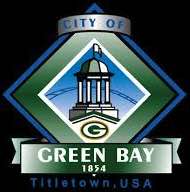
![]()

![]()

(CORNING, Calif. – August 14, 2015) A federal judge ruled today that the U.S. District Court, Eastern District of California, has subject matter jurisdiction over a lawsuit filed by the Paskenta Band of Nomlaki Indians under the federal Racketeer Influence and Corruption (RICO) Act and other state and federal laws against former Tribal officials and senior employees accused of defrauding the Tribe of tens of millions of dollars. The court rejected claims by defendants that the Tribe’s lawsuit is an intra-tribal dispute and therefore the Court had no jurisdiction to hear any of the Tribe’s claims.
“We are gratified by the Court’s decision. The Tribe brought this action to hold responsible a group of individuals who, for well over a decade, conspired to steal tens of millions of dollars from the Tribe,” the Paskenta Band of the Nomlaki Indians Tribal Council said in a statement. “That stolen money, much of which the Ringleaders used to pay for a lifestyle of private jet travel, sports cars, and luxury homes, could and should have been used to improve the welfare of the Tribe’s members. The Court’s decision today makes clear that these individuals and others who benefited from their scheme will be held responsible for the harms they caused.”
The Tribe’s co-lead counsel Stuart Gross, of Gross Law P.C., added, “With a single sentence, the Court rejected the argument that this case is an intra-tribal dispute over tribal membership and governance over which the Court lacks jurisdiction. The decision sends a clear message that tribal officials who steal from the tribes they are supposed to serve can and will be held responsible in federal courts.The defendants misleadingly defended their conspiracy to defraud the Tribe through arguing the federal courts had no power to review actions that violate federal and Tribal law. The opposite is true; and we are pleased the Court rejected defendants’ attempt to avoid liability on this basis.”

 01/23/18 : January 23, 2018 Trademark Trial and Appeal Board’s Decision to Suspend Trademark Cancellation Proceedings pending final disposition of the civil action [17-CV-913, U.S. District Court for Northern District of New York], U. S. Patent and Trademark Office Trademark Trial and Appeal Board, Cancellation No. 92066411, Oneida Nation of Wisconsin v. Oneida Indian Nation of New York
01/23/18 : January 23, 2018 Trademark Trial and Appeal Board’s Decision to Suspend Trademark Cancellation Proceedings pending final disposition of the civil action [17-CV-913, U.S. District Court for Northern District of New York], U. S. Patent and Trademark Office Trademark Trial and Appeal Board, Cancellation No. 92066411, Oneida Nation of Wisconsin v. Oneida Indian Nation of New York
02/01/18 : February 1, 2018 Oneida Nation of WI’s Motion for Reconsideration of the Board’s Order Suspending Proceedings, U. S. Patent and Trademark Office Trademark Trial and Appeal Board, Cancellation No. 92066411, Oneida Nation of Wisconsin v. Oneida Indian Nation of New York
02/12/18 : Green Bay Press-Gazette / USA Today: Green Bay to pay Oneida Seven Generations Corp. $2.5 million to settle lawsuit over waste-to-energy plant
- ABC 2 WBAY: Green Bay to pay Oneida Seven Generations Corp. $2.5 million in waste-to-energy plant lawsuit settlement
- FOX 11 WLUK: Green Bay could pay Oneida Seven Generations Corp. $2.5M to settle suit on waste-to-energy plant
The City Council’s Finance Committee is expected to discuss the settlement proposal at its Tuesday meeting, according to the agenda. And then the full City Council would have to approve the deal.
Once the payment has been made, the lawsuit would be dismissed, according to the five-page settlement agreement[.]
Mayor Jim Schmitt, OSGC Managing Agent Pete King III, and John Breuninger of [OSGC subsidiary] Green Bay Renewable Energy signed the document last month.
ASK YOURSELF:
Why isn’t Green Bay’s insurance company paying the $2.5 Million ‘settlement’?
Maybe the insurance company didn’t want to fund a RICO Extortion Fraud Scheme just because some people in City Hall wanted to intentionally lose the bogus lawsuit in order to cover-up their own misdeeds?
WTF MAYOR SCHMUCK?!
Previously:
02/13/18 : ![]() February 13, 2018 Ron Van Den Heuvel’s Motion to Obtain Sealed Transcript of October 26, 2017 Hearing, U.S. District Court, Eastern District of Wisconsin, Case No. 16-CR-64, United States of America v. Ronald H. Van Den Heuvel
February 13, 2018 Ron Van Den Heuvel’s Motion to Obtain Sealed Transcript of October 26, 2017 Hearing, U.S. District Court, Eastern District of Wisconsin, Case No. 16-CR-64, United States of America v. Ronald H. Van Den Heuvel
02/13/18 : February 16, 2018 Defendant Paul Piikkila’s Motion to Seal Sentencing Memorandum, U.S. District Court, Eastern District of Wisconsin, Case No. 16-CR-64, United States of America v. Paul Piikkila

![]() 02/19/18 : VIDEO – February 19, 2018 City of Green Bay Common Council meeting excerpt
02/19/18 : VIDEO – February 19, 2018 City of Green Bay Common Council meeting excerpt
Aldermen voting to support $2.5 Million ‘settlement’/ransom to RICO extortion fraud scheme Oneida Seven Generations Corp.:
- Tom DeWane • Barbara Dorff • Bill Galvin • Joe Moore • David Nennig • Randy Scannell • Tom Sladek • Mark Steuer • John Vander Leest • Chris Wery
Aldermen voting against $2.5 Million ‘settlement’/ransom to RICO extortion fraud scheme Oneida Seven Generations Corp. – which one of the City’s insurers refuses to fund:
- Andy Nicholson
- Guy Zima
02/20/18 : February 20, 2018 Order Granting Defendant Paul Piikkila’s Motion to File Sentencing Memorandum Under Seal, U.S. District Court, Eastern District of Wisconsin, Case No. 16-CR-64, United States of America v. Paul Piikkila
- February 20, 2018 Sentencing Minutes for Paul Piikkila, U.S. District Court, Eastern District of Wisconsin, Case No. 16-CR-64, United States of America v. Ronald Van Den Heuvel, Paul Piikkila, Kelly Van Den Heuvel
- February 20, 2018 Status Conference Hearing Minutes re: Ronald Van Den Heuvel, U.S. District Court, Eastern District of Wisconsin, Case No. 16-CR-64, United States of America v. Ronald Van Den Heuvel
02/21/18 : WLUK – Former Horicon Bank loan officer Paul Piikkila sentenced in bank fraud case
The former bank loan officer who helped arrange illegal loans to Ron Van Den Heuvel was sentenced to three years on probation.
Paul Piikkila, who worked for Horicon Bank, was convicted of conspiracy to defraud for approving a series of loans worth more than $1 million to straw borrowers after the bank told him not to lend more money to Van Den Heuvel.
At Tuesday’s sentencing in federal court, he was also ordered to help pay the $316,445.47 in restitution that Van Den Heuvel has been ordered to pay.
 February 21, 2018 Oneida Indian Nation of NY’s Opposition to Oneida Nation of WI’s Motion for Reconsideration of the Board’s Order Suspending Proceedings, U.S. Patent and Trademark Office Trademark Trial and Appeal Board, Cancellation No. 92066411, Oneida Nation of Wisconsin v. Oneida Indian Nation of New York
February 21, 2018 Oneida Indian Nation of NY’s Opposition to Oneida Nation of WI’s Motion for Reconsideration of the Board’s Order Suspending Proceedings, U.S. Patent and Trademark Office Trademark Trial and Appeal Board, Cancellation No. 92066411, Oneida Nation of Wisconsin v. Oneida Indian Nation of New York
02/22/18 : February 22, 2018 Trademark Trial and Appeals Board’s Order Granting Oneida Indian Nation of NY’s Motion to Suspend Proceedings, U.S. Patent and Trademark Office Trademark Trial and Appeal Board, Cancellation No. 92066411, Oneida Nation of Wisconsin v. Oneida Indian Nation of New York
02/22/18 : February 22, 2018 Judgment in a Criminal Case, U.S. District Court, Eastern District of Wisconsin, Case No. 16-CR-64, United States of America v. Paul J. Piikkila
 02/23/18 : February 23, 2018 USDOI Reply in Support of Motion to Dismiss w/ Exhibits, U.S. District Court for the Northern District of New York, Case No. 5:17-CV-913, Oneida Indian Nation of New York v. United States Department of the Interior
02/23/18 : February 23, 2018 USDOI Reply in Support of Motion to Dismiss w/ Exhibits, U.S. District Court for the Northern District of New York, Case No. 5:17-CV-913, Oneida Indian Nation of New York v. United States Department of the Interior
02/25/18 : YouTube.com/user/GeorgeWebb
See also: Twitter.com/GeorgWebb (‘e’ omitted)
https://youtu.be/dkecV9ynljI
 02/26/18 : February 26, 2018 Oneida Indian Nation of NY’s Letter informing of U.S. Patent & Trademark Office Trademark Trial & Appeal Board’s Order w/ Exhibit, U. S. District Court for the Northern District of New York, Case No. 5:17-CV-913, Oneida Indian Nation of New York v. United States Department of the Interior
02/26/18 : February 26, 2018 Oneida Indian Nation of NY’s Letter informing of U.S. Patent & Trademark Office Trademark Trial & Appeal Board’s Order w/ Exhibit, U. S. District Court for the Northern District of New York, Case No. 5:17-CV-913, Oneida Indian Nation of New York v. United States Department of the Interior
- USA TODAY / Milwaukee Journal Sentinel:
Matthew Krueger is the new U.S. Attorney in the Eastern District of Wisconsin after nomination by President Trump, action by Senate
02/27/18 : February 27, 2018 Summons and Complaint, Brown Co. Case No. 18-CV-245, Ronald Van Den Heuvel v. Philip Reinhart, Steve Smith [Stephen Smith] & Ed Kolasinski
 03/02/18 : March 2, 2018 Joint Motion to Amend Discovery, U.S. District Court, Eastern District of Wisconsin, Green Bay Division, Case No. 16-CV-1217, Oneida Nation of Wisconsin v. Village of Hobart, Wisconsin
03/02/18 : March 2, 2018 Joint Motion to Amend Discovery, U.S. District Court, Eastern District of Wisconsin, Green Bay Division, Case No. 16-CV-1217, Oneida Nation of Wisconsin v. Village of Hobart, Wisconsin
03/05/18 : March 5, 2018 TEXT ONLY ORDER granting Joint Motion to Amend Discovery Schedule by Oneida Nation of WI, signed by Chief Judge William C. Griesbach on 03/05/2018. All discovery is to be completed no later than April 13, 2018. Dispositive motions are to be filed no later than May 29, 2018. U.S. District Court, Eastern District of Wisconsin, Green Bay Division, Case No. 16-CV-1217, Oneida Nation of Wisconsin v. Village of Hobart, Wisconsin
 03/07/18 : March 7, 2018 TEXT ORDER granting Oneida Indian Nation of NY’s letter request for Oral Arguments re US DOI’s Motion to Dismiss for Lack of Subject Matter Jurisdiction and Failure to State a Claim, U. S. District Court for the Northern District of New York, Case No. 5:17-CV-913, Oneida Indian Nation of New York v. United States Department of the Interior
03/07/18 : March 7, 2018 TEXT ORDER granting Oneida Indian Nation of NY’s letter request for Oral Arguments re US DOI’s Motion to Dismiss for Lack of Subject Matter Jurisdiction and Failure to State a Claim, U. S. District Court for the Northern District of New York, Case No. 5:17-CV-913, Oneida Indian Nation of New York v. United States Department of the Interior
It is hereby ORDERED that ORAL ARGUMENTS … are set for 4/12/2018 at 12:00 PM in Albany before U.S. District Judge Mae A. D’Agostino. [time changed to 2:00 PM]
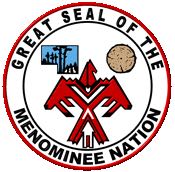 03/15/18 : March 15, 2018 Complaint – Jury Trial Demanded by Plaintiff Menominee Indian Tribe of Wisconsin v. Defendants Purdue Pharma LP et al, U.S. District Court, Eastern District of Wisconsin, Case No. 18-CV-414, The Menominee Indian Tribe of Wisconsin v. Purdue Pharma LP, et al
03/15/18 : March 15, 2018 Complaint – Jury Trial Demanded by Plaintiff Menominee Indian Tribe of Wisconsin v. Defendants Purdue Pharma LP et al, U.S. District Court, Eastern District of Wisconsin, Case No. 18-CV-414, The Menominee Indian Tribe of Wisconsin v. Purdue Pharma LP, et al
![]()
- March 15, 2018 Plea Agreement by Fmr. Menominee Tribal Police Officer Basil O’Kimosh Jr., U.S. District Court, Eastern District of Wisconsin, Case No. 17-CR-200, United States of America v. Basil L. O’Kimosh, Jr.
03/16/18 : WLUK: Fired Menominee Tribal Police Officer Basil O’Kimosh Jr. convicted in sexting case with teenage girl
GREEN BAY (WLUK) – A former Menominee tribal police officer was convicted Friday of having inappropriate social media contact with a teenage girl.
Basil O’Kimosh Jr. will be sentenced June 11.
The count results in a potential sentence of 15-to-30 years in prison but the parties have agreed to recommend the minimum of 15 years, according to the plea agreement filed Thursday.
According to the criminal complaint, the girl told investigators O’Kimosh first contacted her on Facebook. In the complaint, the girl goes on to say the two continued to communicate frequently on Snapchat while O’Kimosh was working the overnight shift. She says it continued even after O’Kimosh, 39, learned she was only 15. The complaint states O’Kimosh admitted to sending sexual pictures, but denies any intent of having the girl perform sex acts on him.
The Menominee Tribal Police department fired O’Kimosh after learning of the allegations.
MENOMINEE (WLUK) — The Menominee Tribe is suing major companies that manufacture and distribute opioid drugs.
“Menominee continues to endure the most catastrophic effects of this opioid epidemic. We need to hold these manufacturers and distributors accountable,” Menominee Tribal Chairman Douglas Cox said in a news release.
The tribe is going after pharmaceutical companies including Purdue Pharma L.P., Teva Pharmaceutical Industries Ltd., and Allergan PLC, and distributors McKesson Corp., Cardinal Health Inc., and AmerisourceBergen Corp.
They’re accused of marketing prescriptions in a way that hides or minimizes the risk of addiction, as well as failing to abide by the laws that are meant to prevent abuse of prescribed drugs.
 March 16, 2018 Telephone Status Conference Minutes, U.S. District Court, Eastern District of Wisconsin, Case No. 17-CR-160, United States of America v. Ronald H. Van Den Heuvel
March 16, 2018 Telephone Status Conference Minutes, U.S. District Court, Eastern District of Wisconsin, Case No. 17-CR-160, United States of America v. Ronald H. Van Den Heuvel
The matter is scheduled for a Telephone Scheduling Conference on April 20, 2018 at 3:00 pm. The parties are to be prepared to set a date for trial at that time.
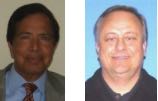
![]() 03/19/18 : March 19, 2018 Decision and Order of Dismissal, U.S. District Court / Eastern Wisconsin, Green Bay Division Case No. 14-CV-1203, Tissue Technology LLC, Partners Concepts Development Inc., Oconto Falls Tissue Inc., and Tissue Products Technology Corp. v. TAK Investments LLC and Sharad Tak
03/19/18 : March 19, 2018 Decision and Order of Dismissal, U.S. District Court / Eastern Wisconsin, Green Bay Division Case No. 14-CV-1203, Tissue Technology LLC, Partners Concepts Development Inc., Oconto Falls Tissue Inc., and Tissue Products Technology Corp. v. TAK Investments LLC and Sharad Tak
03/20/18 : March 20, 2018 Judgment in a Civil Case, U.S. District Court / Eastern Wisconsin, Green Bay Division Case No. 14-CV-1203, Tissue Technology LLC, Partners Concepts Development Inc., Oconto Falls Tissue Inc., and Tissue Products Technology Corp. v. TAK Investments LLC and Sharad Tak
- March 20, 2018 Docket Entry Notification of March 21, 2018 Status Hearing reset to May 31, 2018, U.S. District Court, Northern District of Illinois, Eastern Division, Docket No. 17-CV-108, RNS Servicing, LLC v. Spirit Construction Services, Inc., Steven Van Den Heuvel, ST Paper, LLC and Sharad Tak

![]() 03/27/18 : March 27, 2018 Stipulation to Dismiss Appeal by Appellants OSGC and GBRE LLC and Appellee City of Green Bay, U.S. Seventh Circuit Court of Appeals Docket No. 17-2341, Oneida Seven Generations Corp. and OSGC subsidiary Green Bay Renewable Energy, LLC / GBRE v. City of Green Bay
03/27/18 : March 27, 2018 Stipulation to Dismiss Appeal by Appellants OSGC and GBRE LLC and Appellee City of Green Bay, U.S. Seventh Circuit Court of Appeals Docket No. 17-2341, Oneida Seven Generations Corp. and OSGC subsidiary Green Bay Renewable Energy, LLC / GBRE v. City of Green Bay
03/28/18 : March 28, 2018 Order dismissing appeal pursuant to Federal Rule of Appellate Procedure 42(b), U.S. Seventh Circuit Court of Appeals Docket No. 17-2341, Oneida Seven Generations Corp. and OSGC subsidiary Green Bay Renewable Energy, LLC / GBRE v. City of Green Bay
03/29/18 : 
![]() March 29, 2018 TAK Investments, LLC’s Amended Affirmative Defenses and Counterclaim, U.S. District Court / Eastern Wisconsin, Green Bay Division Case No. 14-CV-1203, Tissue Technology LLC, Partners Concepts Development Inc., Oconto Falls Tissue Inc., and Tissue Products Technology Corp. v. TAK Investments LLC and Sharad Tak
March 29, 2018 TAK Investments, LLC’s Amended Affirmative Defenses and Counterclaim, U.S. District Court / Eastern Wisconsin, Green Bay Division Case No. 14-CV-1203, Tissue Technology LLC, Partners Concepts Development Inc., Oconto Falls Tissue Inc., and Tissue Products Technology Corp. v. TAK Investments LLC and Sharad Tak
03/30/18 : March 30, 2018 Order, U.S. Tax Court Docket No. 21583-15, VHC Inc. and Subsidiaries v. Commissioner of Internal Revenue Service [IRS]
ORDERED that, on or before April 20, 2018, the parties shall file a written status report (preferably a joint status report), informing the Court of the differences in the above-referenced Computations for Entry of Decision.
 04/03/18 : April 3, 2018 USA’s Motion to Amend Defendant Ronald Van Den Heuvel’s Conditions of Release w/ Exhibits, U.S. District Court, Eastern District of Wisconsin, Case No. 17-CR-160, United States of America v. Ronald H. Van Den Heuvel [129 pages]
04/03/18 : April 3, 2018 USA’s Motion to Amend Defendant Ronald Van Den Heuvel’s Conditions of Release w/ Exhibits, U.S. District Court, Eastern District of Wisconsin, Case No. 17-CR-160, United States of America v. Ronald H. Van Den Heuvel [129 pages]
I. BACKGROUND
Defendant Ronald Van Den Heuvel has been under court supervision since April of 2016, when he was first indicted in case number 2016-CR-64. Van Den Heuvel has now been sentenced in that case for conspiracy to commit bank fraud, and he is under a court order to pay $316,445.47 in restitution to the victim (2016-CR-64, Dkt. 184). Van Den Heuvel was also sentenced to a term of 36 months’ imprisonment, but he has not yet been remanded to the custody of the Bureau of Prisons.
Van Den Heuvel was indicted a second time in September of 2017 in this case (2017- CR-160), in which he faces charges of wire fraud and money laundering. The Court imposed the same conditions of release and supervision in this case as in the first one, which include a requirement that Van Den Heuvel refrain from violating any federal, state, or local laws (2017- CR-160, Dkt. 5).
In recent months, the Government has learned about multiple questionable financial transactions initiated by Van Den Heuvel since he has been under court supervision. The Government has not completed its investigation of these transactions. Given their frequency, size, and indicia of fraud, however, the Government seeks to update the Court about these transactions and to modify Van Den Heuvel’s conditions of release to prevent this conduct going forward. In the Government’s view, a modification of Van Den Heuvel’s conditions of release is necessary to protect the public as well as Van Den Heuvel’s previously identified victims, who are statutorily entitled to restitution.
The information that follows is based upon interviews with witnesses, a review of documents provided by those witnesses, and information received from the U.S. Probation Office. The Government has consulted with the U.S. Probation Office and that Office has agreed that, given the complexity of Van Den Heuvel’s transactions, the Government should present this material directly to the Court.
II. Transactions/Attempted Transactions Involving John Lozo
Beginning in the summer of 2016, and continuing into early 2018, Van Den Heuvel negotiated with a man named John Lozo in an effort to solicit funds for various projects or equipment. Van Den Heuvel sent Lozo a plethora of information during those negotiations, some of which was false or highly misleading. For example, on June 7, 2017, Van Den Heuvel sent Lozo and others an “Executive Summary” of the “Great Lakes Tissue” project in Cheboygan, Michigan, which promised “world changing technologies that process food contaminated waste streams to create” various products. (Exhibit A) The “Executive Summary” included financials, which represented, in part, that $7.7 million in “EB5 Funds were paid” for equipment for the project. Van Den Heuvel’s solicitation of EB-5 funds and subsequent misuse of those funds are part of the wire-fraud scheme alleged in case number 2017-CR-160. The Government’s tracing of the EB-5 funds indicates that Van Den Heuvel received substantially less than $7.7 million, and that the funds were mostly not used for equipment for the Cheboygan, Michigan project. The owner of Great Lakes Tissue in Cheboygan, Michigan, has informed law enforcement that neither he nor Great Lakes Tissue has received funds from Van Den Heuvel.
As another example, on September 11, 2017, Van Den Heuvel sent Lozo an email with several attachments, including (a) a letter, purporting to be on attorney Ty Willihnganz’s letterhead, but with Willihnganz’s name misspelled; (b) a “consulting agreement” dated March 16, 2017, purporting to promise Van Den Heuvel $47,000 per month for five years; and (c) a resume for Van Den Heuvel containing several false statements, such as that “Green Box has partnered with Cargill Inc.” (all parts of Exhibit B) As alleged in the 2017 indictment, Cargill had long ago terminated its agreement with Green Box, although Van Den Heuvel falsely claimed otherwise in soliciting funds for his companies.
Van Den Heuvel’s communications with Lozo included efforts in late 2017 to sell, or obtain an investment in, pyrolysis machines manufactured by Kool Manufacturing. Lozo served as a broker in that potential transaction, and helped to arrange a “demonstration” of a pyrolysis machine for potential investors/buyers, run by Van Den Heuvel, in November of 2017. (Incidentally, Van Den Heuvel attempted to charge $5,000 for that November 2017 demonstration.) The Kool pyrolysis machines are also part of the wire-fraud scheme charged in case number 2017-CR-160; as noted in that indictment, Van Den Heuvel fraudulently obtained funds from victim Cliffton Equities, as well as other entities, to purchase those machines. When Van Den Heuvel’s company Green Box NA Green Bay filed for bankruptcy in 2016, the Kool machines were also listed as assets of the estate, which meant that they were subject to the bankruptcy court’s supervision until the bankruptcy case was ultimately terminated on December 29, 2017. As a result, court permission would have been required for Van Den Heuvel to sell the Kool units or pledge them to new investors; no such permission was obtained. In materials that Van Den Heuvel sent to Lozo, he often changed the spelling of the machines, calling them “Cool Units” rather than “Kool Units,” perhaps in an effort to suggest these were different machines. For example, Power Point presentations that Van Den Heuvel sent to Lozo on September 11, 2017 contain this new spelling. (E.g., Exhibit C) Lozo has confirmed, however, that the pyrolysis machines in question were manufactured by “Kool.”
The Government is not aware whether Van Den Heuvel successfully obtained any funds through his work with Lozo. It is clear, however, that Van Den Heuvel has continued to make materially false statements in an effort to obtain “loans” or “investments,” including statements that are closely related to his charged misconduct.
III. Transactions/Attempted Transactions Involving Knapp, Kashat, and Kalet
Aside from his work with Lozo, Van Den Heuvel has been soliciting funds (in the form of “loans” or “investments”) from several other people. Two individuals named Mason Kashat and Alex Knapp, both of New York, have loaned substantial sums to Van Den Heuvel in the past several months. According to Kashat and Knapp, they jointly loaned Van Den Heuvel approximately $60,000, receiving in exchange an equity stake in a company called Purely Cotton, a lien against the proceeds of one of Van Den Heuvel’s lawsuits (against Sharad Tak), and a “personal guarantee” from Van Den Heuvel. According to Knapp, he also made two smaller loans to Van Den Heuvel, for approximately $7,500 (to “Tissue Technology Inc. and Purely Cotton Products Corp.”) and $20,000 (to “PCDI MI”), between July and December of 2017. Those two smaller loans are already in default. Van Den Heuvel pledged Purely Cotton assets as collateral for Knapp’s loans, in addition to a long list of other equipment. That equipment consisted primarily of “after dryers,” which, according to a knowledgeable witness, Van Den Heuvel does not currently own or control. Knapp also received an equity stake in Purely Cotton, a lien against proceeds from a Tak lawsuit, and a “personal guarantee” from Van Den Heuvel.
Van Den Heuvel and Kashat also worked with a man named Mike Kalet, a broker in New York, to obtain additional funding for projects proposed by Van Den Heuvel. In connection with these projects, Knapp, Kashat, and Kalet all received written materials from Van Den Heuvel. For example, Kalet received a document entitled “Great Lakes Tissue Executive Summary 12 1 17,” which seeks to justify a $7.5M loan for “PCDI Michigan” to support the “Great Lakes Tissue Company.” (Exhibit D) That “Executive Summary” appears to be an updated version of the “Executive Summary” that Van Den Heuvel sent Lozo in June of 2017. (Exhibit A) The December 2017 version contains questionable representations, including that Kelly Van Den Heuvel (the defendant’s wife) is the President of Tissue Technology, LLC and of PCDI Michigan, and that she has a net worth of $29 million. Kalet also received a document entitled “Great Lakes Tissue Ron Van Den Heuvel Resume,” dated June 6, 2017. (Exhibit E) That “resume” appears to be an updated version of the “resume” that Van Den Heuvel sent to Lozo in September of 2017. (part of Exhibit B) While the resume sent to Lozo falsely represented that Green Box was “partnered with Cargill Inc.,” the resume sent to Kalet claimed that “Tissue Technology has partnered with Cargill Inc.” (emphasis added) and that Van Den Heuvel’s companies hold “Exclusive Intellectual Property Rights” in Cargill’s “Enhanced Fibre Additive (EFA) Patent and System Design, Equipment and Software.” In fact, Cargill terminated its EFA license agreement with Green Box in October 2013, and has not, to the Government’s knowledge, renewed that license agreement with Tissue Technology or any other company affiliated with Van Den Heuvel. Finally, Van Den Heuvel also informed Kalet that he had already prevailed in at least one lawsuit against Sharad Tak and was simply waiting for a determination of damages. At least with respect to the federal case involving Van Den Heuvel and Tak, that is untrue; to the contrary, Tak has prevailed in that matter.
Again, the Government is not aware whether Van Den Heuvel successfully obtained any funds through his work with Kalet. These misrepresentations, however, are similar to those alleged in the 2017 indictment against Van Den Heuvel. Relying on Van Den Heuvel’s representations, Kalet, in turn, sent misleading materials to other potential investors.
IV. New Transactions Proposed to Probation
On March 23, 2018, Van Den Heuvel met with U.S. Probation Officer Mitchell Farra to inform Farra about Van Den Heuvel’s intent to conduct several complicated and sizeable financial transactions in the near future. Van Den Heuvel provided Farra with an organizational chart summarizing the companies involved in these transactions. (Exhibit F) Given Van Den Heuvel’s pattern of conduct in the past year, and the nature of the newly proposed transactions, the Government has serious concerns about the legitimacy of these transactions. The proposed transactions are listed below, as well as some of the related inconsistencies that explain the Government’s concern:
- Proposed Transaction: In April 2018, Van Den Heuvel plans to sell 5% of his stock in Tissue Technology to a man named “Ray McDonial,” who owns a hedge fund in Dallas, Texas. As part of this deal, Van Den Heuvel will receive $1M on the closing date and then $1M per year for the following 4 years for a total of $5M.
- In preparing the pre-sentence report for Case Number 2016-CR-64, Van Den Heuvel represented that he owns 83 million shares of Tissue Technology, contained in KR Trustco, a trust controlled by other individuals. Van Den Heuvel also stated that the trust and its holdings are subject to ongoing litigation. Van Den Heuvel represented that the Tissue Technology stock is not publicly traded and has no currently ascertainable value. Given those facts, the legitimacy of a $5M sale of Tissue Technology stock is questionable.
- In addition, according to “Executive Summary” sent to Kalet, Kelly Van Den Heuvel is the “president” of Tissue Technology and potentially owns 74% of the company. (Exhibit D) Kelly’s role in this transaction is unclear.
- Proposed Transaction: In the second week of May 2018, Van Den Heuvel will sell $1M in stock in Purely Cotton to Great Lakes Tissue. This transaction will result in Van Den Heuvel receiving $2M in royalties on patents he owns.
- Van Den Heuvel has repeatedly misrepresented information about “patents” he “owns” to potential investors, including EB-5 investors.
- Ownership and control of these entities is unclear:
- According to the organizational chart provided by Van Den Heuvel (Exhibit F), Great Lakes Tissue and Purely Cotton already have the same owner; both are subsidiaries of Tissue Technology. As a result, it is unclear what this sale entails or how it would generate royalties for Van Den Heuvel.
- According to the “Executive Summaries” sent to both Lozo and Kalet, by contrast, PCDI owns or will own Great Lakes Tissue. (Exhibits A, D) The “Executive Summary” sent to Kalet also represents that Kelly Van Den Heuvel is the president of PCDI.
- The company called “Great Lakes Tissue” in Cheboygan, Michigan is owned by Clarence Roznowski, not by Van Den Heuvel or one of his companies. Roznowski has no plans to buy any stock in Purely Cotton and is, in fact, unsure whether Purely Cotton has any assets.
- In addition, Van Den Heuvel pledged Purely Cotton equity to Kashat and Knapp as collateral for their (unpaid) loans. It is not clear how this equity stake differs from the $1M in Purely Cotton stock that Van Den Heuvel now proposes to sell.
- Proposed Transaction: In June, Van Den Heuvel will sell 5% of his ownership in Partners Concepts Development, Inc. (PCDI) to a man named Kaoumi in Ghana. Van Den Heuvel estimates this will be a $6M sale.
- In preparing the pre-sentence report for Case Number 2016-CR-64, Van Den Heuvel represented that he owns 65 million shares of PCDI, contained in KR Trustco [LLC], a trust controlled by other individuals. Van Den Heuvel also stated that the trust and its holdings are subject to ongoing litigation. Van Den Heuvel represented that the PCDI stock is not publicly traded and has no currently ascertainable value. Given those facts, the legitimacy of a $6M sale of PCDI stock is questionable.
- The “Executive Summary” sent to Kalet claimed that Kelly Van Den Heuvel is the President of PCDI. (Exhibit D) Her role in this transaction is unclear.
- Proposed Transaction: Van Den Heuvel has, or will be entering into, ten-year consulting agreements with Great Lakes Tissue Company and True Sustainability to receive $38,000 per month in salary.
- In preparing the pre-sentence report for Case Number 2016-CR-64, Van Den Heuvel represented that his monthly income consisted entirely of $4,099 in social security income.
- According to the organizational chart provided to Probation, both True Sustainability [Trustco LLC] and Great Lakes Tissue are subsidiaries of Tissue Technology, Inc. (Exhibit F) Van Den Heuvel represented in the pre-sentence report that he owns 83 million shares of Tissue Technology; according to “Executive Summary” sent to Kalet, Kelly Van Den Huevel is the “president” of Tissue Technology and potentially owns 74% of the company. (Exhibit D) And another of Van Den Heuvel’s proposed transactions entails selling 5% of Tissue Technology stock to a man named Ray McDonial.
- The company called “Great Lakes Tissue” in Cheboygan, Michigan is owned by Clarence Roznowski, who has informed law enforcement that he has no intention of hiring Van Den Heuvel as a consultant or paying him $38,000/month.
- It is thus unclear who controls these companies or has agreed to pay Van Den Heuvel a total of $4.56M to “consult” for them.
- Proposed Transaction: Van Den Heuvel has a royalty agreement with PC Fibre Box in which he will receive $48,000 per month in royalties on his intellectual property.
- In preparing the pre-sentence report for Case Number 2016-CR-64, Van Den Heuvel represented that his monthly income consisted entirely of $4,099 in social security income.
- Van Den Heuvel has repeatedly misrepresented information about “patents” he “owns” to potential investors.
- According to the organizational chart provided by Van Den Heuvel (Exhibit F), PC Fibre is a subsidiary of EARTH / RTS / The Green Box Companies. Edward Kolasinski, a current executive of RTS, has indicated that a royalty agreement with PC Fibre does exist, but that PC Fibre is currently generating no profits and none are projected in the near future.
- Proposed Proposed Transaction: Van Den Heuvel plans to withdraw $1M from a company called Patriot Services Inc., which will earn a $1M profit this year.
- The Government has only very limited information about this company. In preparing the pre-sentence report for Case Number 2016-CR-64, Van Den Heuvel did not disclose any income, potential income, or ownership interest in a company called Patriot Services.
As outlined above, each of the proposed transactions has indicia of illegitimacy. Van Den Heuvel’s representations about these businesses and transactions appear to differ depending on his audience. The Government is concerned that should these “transactions” go forward, Van Den Heuvel will defraud new victims and/or risk depriving pre-existing victims of restitution, including the $316,445.47 he has already been ordered to pay.
IV. CONCLUSION
For the aforementioned reasons, the Government proposes that Van Den Heuvel’s conditions of release be modified to include a prohibition on [Ron] Van Den Heuvel engaging in any financial transactions with a dollar value over $500 without obtaining pre-approval from the United States Probation Office, and a requirement that Van Den Heuvel provide access to all financial information requested by the United States Probation Office.
Dated at Milwaukee, Wisconsin, this 3rd day of April, 2018.
Respectfully submitted,
MATTHEW D. KRUEGER
United States Attorney
By: s/Rebecca Taibleson
Images from court Exhibits of Ron Van Den Heuvel’s various fraudulent ‘green energy’ / ‘recycling’ / ‘waste-to-electricity’ / ‘pyrolysis’ presentations for a project at
437 SOUTH MAIN STREET
CHEBOYGAN, MI 49721:
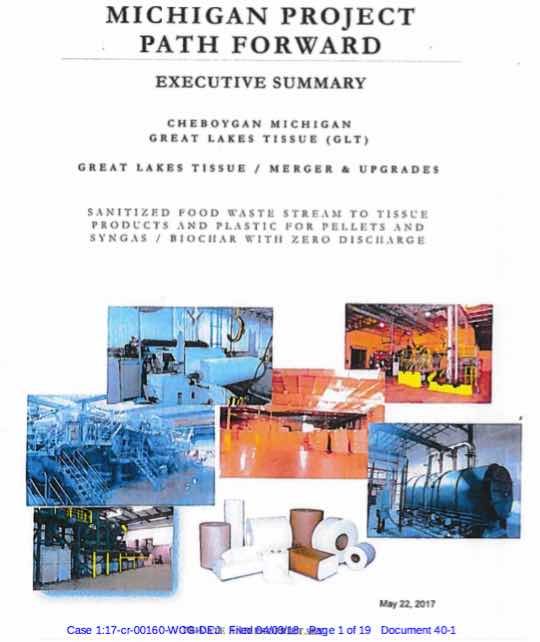
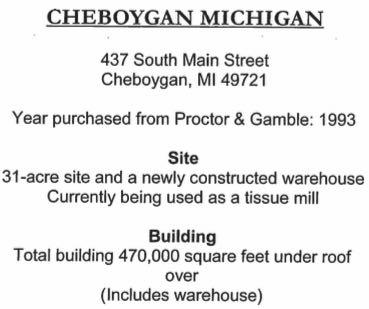
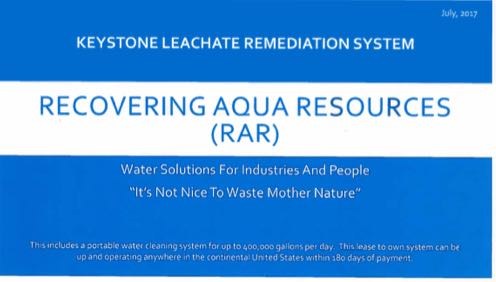
Filtration unit patented by Generation Clean Fuels, LLC owner
and Ron’s Recovering Aqua Resources partner Gaylen LaCrosse :
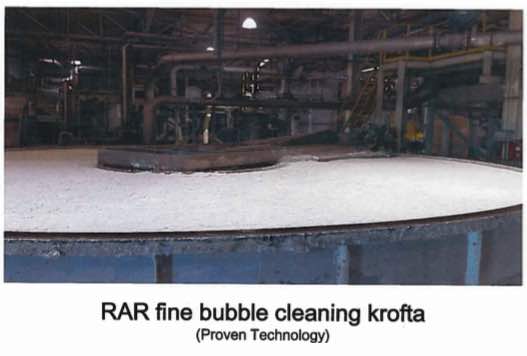
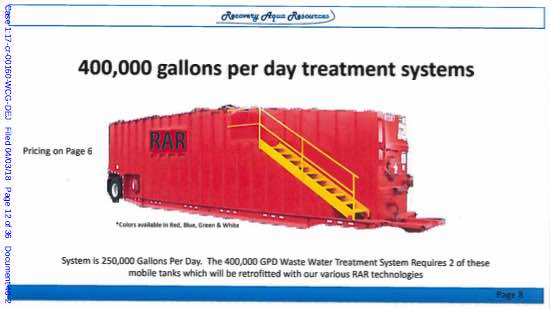
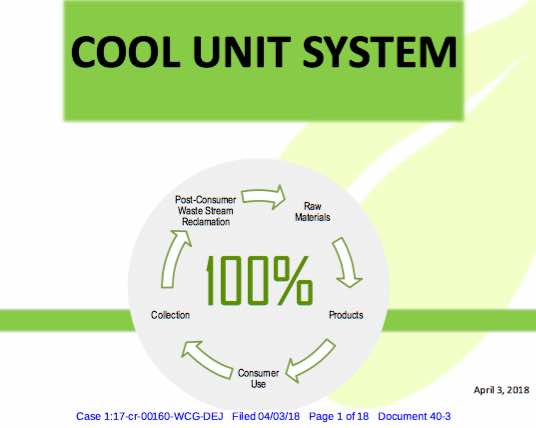
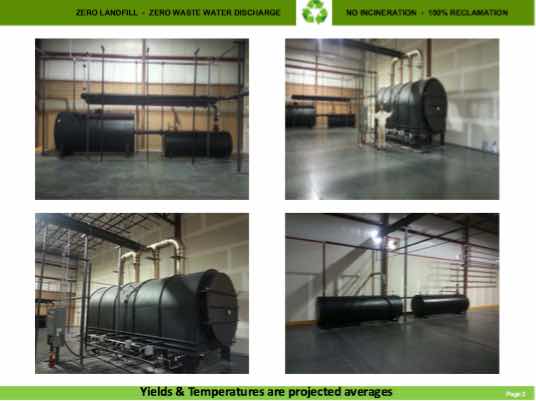
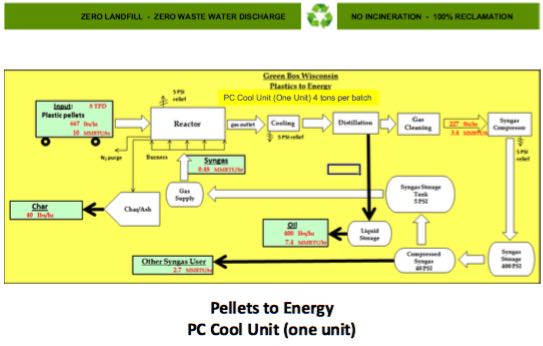
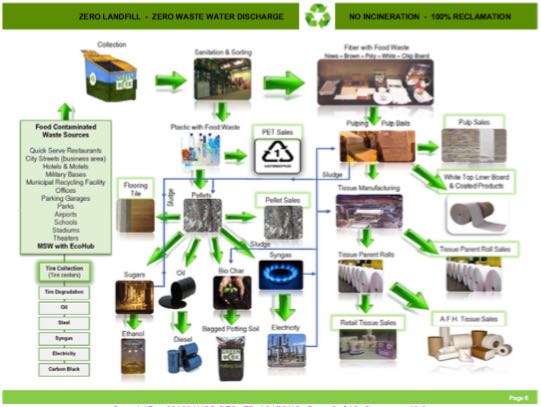
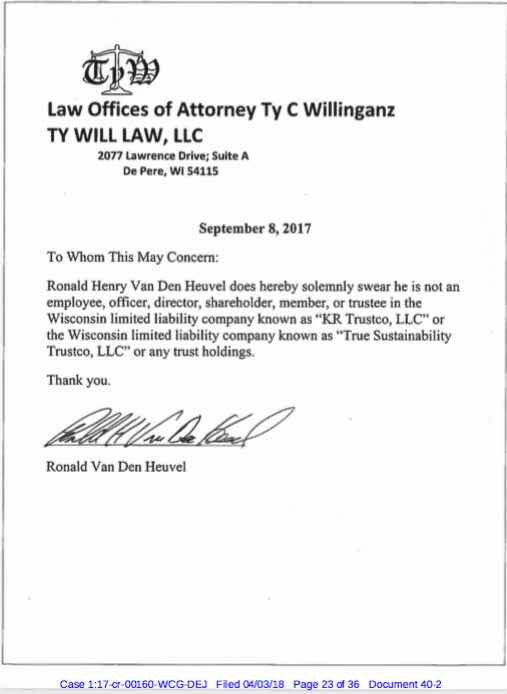
See also:
FLASHBACK:
Master Lease Agreement
between Arland Energy Systems, LLC and Arland Clean Fuels, LLC / aka Generation Clean Fuels, LLC and Naples, FL-based ASC Lease Income, LLC and Veterans Capital Corp. of which Joseph E. Wold Jr. is President.
Veterans Capital Corp. was to lease a
“poly conversion liquefaction machine”
for Oneida Seven Generations Corp. / OSGC
and for OSGC wholly-owned subsidiary
Green Bay Renewable Energy, LLC / GBRE
that was to be located & operated at
437 South Main Street
CHEBOYGAN, MI 49721
 after being manufactured by
after being manufactured by
Spartan, Inc. of Bakersfield, CA,
of which the President was
ACF / GCF Principal Louis Stern
and its Vice-President Charles Hinson,
a co-patent holder with Gaylen La Crosse.
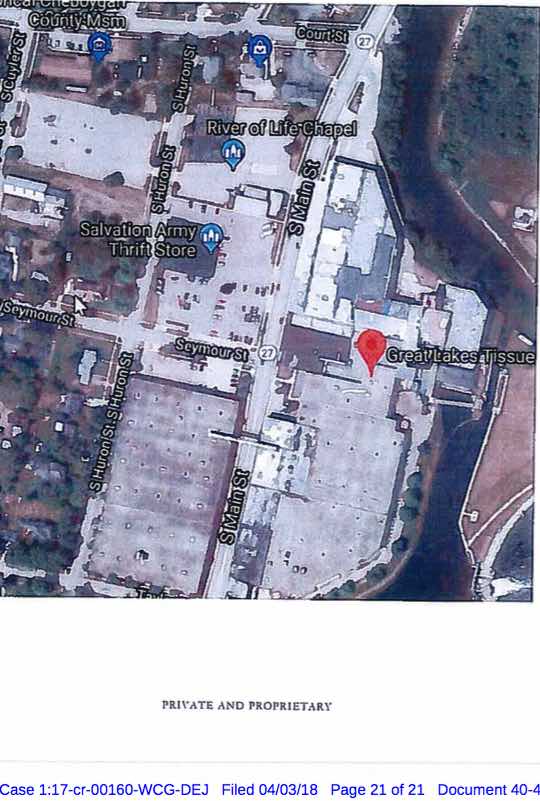
On May 24, 2013 and June 10, 2013 ACF / GCF CEO Louis Stern signed Master Lease & Service Agreements with OSGC CEO / GBRE Chair Kevin Cornelius resulting in ACF / GCF filing a $400 Million lawsuit against the Oneida Nation of Wisconsin which appears to be an extortion racket designed to defraud the ONWI General Tribal Council of MULTIMILLIONS.
Louis Stern & Ron Van Den Heuvel’s 20-year
business partner Gaylen LaCrosse are co-owners
of Arland Clean Fuels aka Generation Clean Fuels
which sued Oneida Nation WI for $400 Million
& got an undisclosed multimillion ‘settlement‘
To defend their criminal fraud scheme, OSGC & GBRE have engaged in malicious litigation against the City of Green Bay at the behest of OSGC / GBRE counsel and co-conspirators…
GODFREY & KAHN S.C.

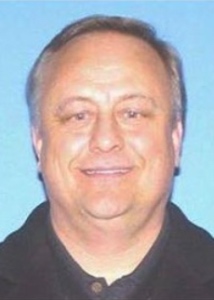
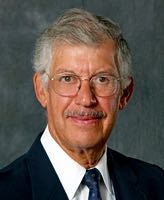
 QUESTION:
QUESTION:
WHAT IS…
OF WHICH RON VAN DEN HEUVEL IS REGISTERED AGENT…
AND WHY DID RON’s WAREHOUSE-RESIDING ‘ATTORNEY’
(WHEN NOT SUSPENDED) TY C. WILLIHNGANZ ORGANIZE IT
ON MAY 24, 2013 [ARTICLES of ORGANIZATION] WITH RON’s
E.A.R.T.H. AS ‘REGISTERED AGENT’ … THE EXACT SAME DAY
ONEIDA SEVEN GENERATIONS CORP. CEO & OSGC SUBSIDIARY
GREEN BAY RENEWABLE ENERGY LLC CEO KEVIN CORNELIUS
SIGNED MASTER LEASE CONTRACTS WITH ACF LEASING LLC,
ACF SERVICES LLC & GENERATION CLEAN FUELS LLC…
FOR OSGC’s ‘PYROLYSIS’ SITES IN MONONA, WISCONSIN…
& IN CHEBOYGAN, MICHIGAN?
04/05/18 :  April 5, 2018 Letter from Oneida Indian Nation of NY requesting leave to file 4 pages of documents detailing a step-by-step process DOI personnel follow to obtain higher-level approvals for changing the names of Indian tribes in the list the DOI publishes in the Federal Register, U. S. District Court for the Northern District of New York, Case No. 5:17-CV-913, Oneida Indian Nation of New York v. United States Department of the Interior
April 5, 2018 Letter from Oneida Indian Nation of NY requesting leave to file 4 pages of documents detailing a step-by-step process DOI personnel follow to obtain higher-level approvals for changing the names of Indian tribes in the list the DOI publishes in the Federal Register, U. S. District Court for the Northern District of New York, Case No. 5:17-CV-913, Oneida Indian Nation of New York v. United States Department of the Interior
04/12/18 : April 12, 2018 TRANSCRIPT of Hearing re: U.S. Dept. of Interior Motion to Dismiss, U.S. District Court for the Northern District of New York, Case No. 5:17-CV-913, Oneida Indian Nation of New York v. United States Department of the Interior
- USA TODAY / Green Bay Press-Gazette –
Feds: Ron Van Den Heuvel continues fraudulent pitches; concerned Ron Van Den Heuvel could continue to defraud investors even after conviction

Federal authorities are concerned that Ron Van Den Heuvel’s conviction for bank fraud and another 14 additional counts of fraud have not deterred him from continuing to solicit investments under false pretenses.
U.S. Attorney Matthew Krueger has asked U.S. Judge William Griesbach to impose a new restriction on Van Den Heuvel’s conditions of release: A $500 cap on any financial transaction unless the U.S. Probation Office pre-approves it. Griesbach will decide whether to impose the condition during a hearing next week.
The request was made in the government’s second fraud case against Van Den Heuvel, filed in September 2017. Federal prosecutors allege he defrauded investors in companies connected to Green Box N.A. out of $9 million between 2011 and 2015.
In his motion, Krueger said the government continues to investigate several transactions and pitches to investors that started in summer 2016 and continued through March when Van Den Heuvel told his probation officer he intended to conduct “several complicated and sizable financial transactions in the near future.”
Van Den Heuvel has already been convicted of bank fraud in a case filed in April 2016. He was found guilty of using straw borrowers to obtain loans under false pretenses to keep his businesses afloat. He was sentenced in January to three years in prison but is awaiting notice from the U.S. Department of Corrections on when he will begin his prison term. …
One person [Ron] encouraged to invest in his companies was sent documents that included a resume with false statements and letter on Van Den Heuvel’s attorney [Ty Willihnganz’s] letterhead with the attorney’s last name misspelled. …
04/17/18 : USA TODAY / Green Bay Press-Gazette –
Judge William Griesbach: Green Box owner Ron Van Den Heuvel must disclose fraud conviction to potential investors
[U.S. Judge William] Griesbach said his intent in imposing the conditions was to protect the public and ensure anyone who chooses to give Van Den Heuvel money knows with whom they’re dealing.
“With a mandatory disclosure, then at least people who want to deal with Mr. Van Den Heuvel can do so with eyes wide open,” Griesbach said. “The goal is to ensure there are no more victims. …”
Griesbach’s conditions were imposed as part of the wire fraud and money laundering case, which is scheduled to go to trial on [November 13, 2018].
- April 17, 2018 Motion Hearing Minutes re: Government’s Motion to Amend Conditions of Release of Ron Van Den Heuvel, U.S. District Court, Eastern District of Wisconsin, Case No. 16-CR-64 and 17-CR-160, United States of America v. Ronald H. Van Den Heuvel
- April 17, 2018 Order Setting Conditions of Release of Ron Van Den Heuvel, U.S. District Court, Eastern District of Wisconsin, Case No. 16-CR-64 and 17-CR-160, United States of America v. Ronald H. Van Den Heuvel
Defendant shall seek approval by U.S. Probation for any transactions involving $500.00 or more, either personally or on behalf of his business entities.
Defendant must provide full disclosure to any party he is attempting or soliciting to conduct business with:
a) that he has been convicted of bank fraud and sentenced to a term of 3 years imprisonment.
b) that he is facing an additional 14 counts for wire fraud and money laundering.
c) that he has court appointed counsel in these matters and has been determined to be indigent.Defendant must submit monthly financial reports to Pretrial Services to include:
a) any amount and source of monthly income received.
b) current assets and any disposal of assets which are in his name, or over which he has control or is able to convey.
c) provide copies of account statements from any bank or financial institution held in his name or over which he has control.
04/25/2018:
DOE Office of Indian Energy
The Office of Indian Energy, in partnership with Western Area Power Administration, hosted a webinar on best practices for tribal energy business structures, including their advantages and disadvantages, goals associated with different business models, and examples of various models. Tribal leaders and community members will also learn how to select the best structure for their goals, existing codes, and laws.
Our tribal case study today is from the Eastern Band of Cherokee Indians. We have two individuals presenting their project: Cameron Cooper and Kevin Cornelius. Mr. Cooper was formerly the energy coordinator for the Eastern Band of Cherokee Indians. While serving as the energy coordinator he started a waste energy project to look at reducing waste-hauling and convert those waste _____ into energy. Mr. Cooper is presently serving as the retail development specialist for the Eastern Band of Cherokee Indians. This position supports retail development efforts by providing research data and marketing of the commercial interests of the Eastern Band of Cherokee Indians. Mr. Cooper still plays an integral role in the energy initiative and has oversight of the waste energy project that has been funded through multiple grants awarded by the Division of Energy and Metal Development.
Mr. Kevin Cornelius works for the Red Fern LLC to develop green energy projects. Over the past five years Red Fern has worked with multiple tribes on feasibility studies to determine the viability of using a variety of heat ducts for conversion to renewable energies. …
Mr. Cornelius was CEO of [Oneida Seven Generations Corp. / OSGC] and he completed thermal conversion technology demonstration projects and had the technology completely vetted and received EPA and State of Wisconsin DNR permits. …
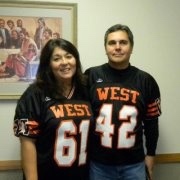 Sheri & Kevin Cornelius
Sheri & Kevin Cornelius
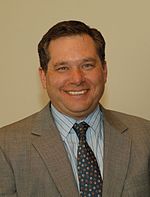 [NOTE: According to WDFI.org, RED FERN, LLC was Organized on 03/27/15 and was recently Administratively DISSOLVED on 03/17/18, its address listed as 6921 N. Barnett Lane, Milwaukee, WI, and its final ‘Registered Agent’ listed as Fmr. Asst. Sec. for Indian Affairs / Fmr. Oneida Nation WI Chief Counsel / Oneida Seven Generations Corp. (OSGC) ‘Independent Tribal Vendor’ Attorney / GODFREY & KAHN S.C. Shareholder – CARL ARTMAN – owner of ARTMAN LAW, LLC, and currently ‘teaching’ at Arizona State University Sandra Day O’Connor College of Law, and whose ‘legal’ representations involving various ONWI & OSGC business ventures have resulted in OVER $100 MILLION in LOSSES.
[NOTE: According to WDFI.org, RED FERN, LLC was Organized on 03/27/15 and was recently Administratively DISSOLVED on 03/17/18, its address listed as 6921 N. Barnett Lane, Milwaukee, WI, and its final ‘Registered Agent’ listed as Fmr. Asst. Sec. for Indian Affairs / Fmr. Oneida Nation WI Chief Counsel / Oneida Seven Generations Corp. (OSGC) ‘Independent Tribal Vendor’ Attorney / GODFREY & KAHN S.C. Shareholder – CARL ARTMAN – owner of ARTMAN LAW, LLC, and currently ‘teaching’ at Arizona State University Sandra Day O’Connor College of Law, and whose ‘legal’ representations involving various ONWI & OSGC business ventures have resulted in OVER $100 MILLION in LOSSES.
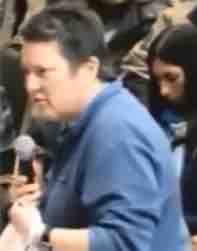 CARL ARTMAN is also Former ONEIDA NATION WI CHIEF COUNSEL, and he is the first cousin of Wisconsin Bar-licensed attorney and current ONWI CHIEF COUNSEL JO ANNE HOUSE]
CARL ARTMAN is also Former ONEIDA NATION WI CHIEF COUNSEL, and he is the first cousin of Wisconsin Bar-licensed attorney and current ONWI CHIEF COUNSEL JO ANNE HOUSE]
Cameron Cooper: And so one of the things I’m easily started looking at was well, if I can put municipal solid waste through, what it’s getting out on the back end is a synthetic gas, and that synthetic gas appears to be, you know, pretty reliable and comparable to natural gas. And I was like, “Well heck, if I can do that then I can run generators and I can run electricity.” So, you know, bright-eyed and bushy-tailed, that’s the way I started looking at this project. Well, as I started kind of researching it more I run into Kevin Cornelius, who you’ll hear from here in a little bit, and they were looking at this stuff in the Oneida region in Wisconsin. And so as was talking to him, you know, he kind of even broadened my horizons even more that, “Cameron, I mean plastics is the way to go.” You know, plastics is oil, as it’s created from oil anyway, so if we can break it back down to it’s baser form or what it just was created from then we can recapture that and sell the byproduct.
And so what you find is even with this municipal solid waste, where there’s plastics, and the real kicker, tires; all three of those put together, you can create biofuels from all three, and each one of them have some other byproducts that are valuable to several different markets.
One of the things we’ve really found this past go-around is that tires have valuable byproducts. And so when we got to this point for us—and I feel like I need to explain this for everybody in the room is, you know, we came up with a goal within our strategic energy plan and we moved forward with that goal, and that goal was to see what was out there, not only to help offset tribal costs, but to offset, you know, or to create money and generate revenue, ’cause that’s how I look at stuff, there’s always a way to potentially help your tribe out in several different classes.
And so one of the things we noticed right off the bat when he started talking to me about plastics, and even tires and municipal solid waste, immediately I started saying, “Well, we have it.” All right? So in Western North Carolina, as I talked about it being mountainous, the western-most counties, so west of Asheville, North Carolina—if you’re a Google person and like to get on Google Maps, look up Asheville, North Carolina, and to the west of Asheville pretty much every county past Buncombe County, which is where Asheville sits, is they’re hauling their trash. So they’re transferring it. They have transfer stations and they’re hauling it to – Georgia is pretty much the biggest spot that they’re tipping their municipal solid waste, and that’s everything from plastics to tires to just regular municipal solid waste. And so there’s tipping fees involved in that, there is hauling fees involved in that, and, you know, for us as a tribe it’s pretty much about, you know, a $300,000.00 haul bill a year. And so, you know, immediately I was like, “Well, if we can offset that and create electricity off of that, or even create oil products or even other potential byproducts, that would be great.”
And so as we started coming up with this idea in our head, well, we’ve got to figure out a way to vet this, because there is nobody – and I challenge each and every one of you on this call to get on Google and look up waste energy projects. You’re going to see a million different leads and what you’re going to find out is nobody is doing this the correct way or the right way in any facet. Everybody’s idea is kind of the same, but it’s all different, and everybody holds everything close to the chest. And the reason why is because the technology is not patent-able. The reason why is because it is so basic. I mean in reality I like to joke with people and I say—when I show you, and you’ll see a picture of it in the next slide or two, I like to equate it to, you know, we’re here in the mountains, so we tend to love our moonshine here in Western North Carolina. And one of the things about that is that this to me is a glorified still, a glorified moonshine still is what I like to call it.
And so when you look at it from that perspective, everybody holds everything close to their chest. So we had to go out there and figure out a way that we could vet this to our people. Not only that, but to see if it looks true and if it holds a value there. And so what we did is we worked with the Department of Energy and Mineral Development, Michael Stephenson there, you know, he really helped us get our feet underneath us as we went through a waste characterization study to look at our waste and to see how much plastics was in there, ’cause that was kind of the focused when we started, was to look and see how much plastic stream we had coming through our transfer station.
And then with the second grant we went out there to demo version to get the demo version here so that everybody could kind of kick the tires, so to speak, and see that it wasn’t detrimental to the environment. And that’s the cool thing about this process, at no point does feedstock every come in contact with an open flame. Everything is degraded over an amount of time, and so you have what they call a retort time, where your byproduct is sitting there breaking down and then basically you condense that gas into usable items.
And so with the third grant we just prolonged the demonstration project to really start looking at feedstocks and then what we’re getting out of that third grant was an actual business model or a business plan. And I think you can go to the next slide there, James.
And so to reiterate this, this is the thermal conversion unit. And as you can see, you see where it says “feedstock hopper.” This is a dual _____ system; you want this thing completely oxygen-deprived as much as possible. You do not want oxygen in this. And so they go as far as proving to your constituency or even paper that you’re trying to sell this to, that there is no open flame to feedstock. Where you see the upper and lower retort auger chambers, those are internal. So the feedstock goes into that, and that big blue bin basically is the chamber. And underneath that is a low-burning natural gas or propane burner.
But here’s the neat thing, it’s a self-sustaining system. So once the system is up and running and you’re running it 24/7 you can basically produce enough gas that it runs itself to heat that chamber. But on top of that, through the pyrolysis process the feedstock, as it breaks down, creates its own heat. And so it’s actually heating up as it’s breaking down as well. And so then you have the discharge valves, where it comes out, and then after that point, like I said, it goes through what I consider a glorified distiller, so you can siphon off whatever gases or byproducts that may be available.
The one thing that we found with our tire study is that there is a lot of carbon, and that carbon we have found at this point appears to be carbon black. Now it might not be the most purified form of carbon black, but it’s pretty close. And so with that being said, what that gives us is another byproduct that is pretty valuable out there on the market. And I’d say it can go anywhere from, what is it, $0.49 a pound now?
Kevin Cornelius: _____ to $1.96 a pound.
Cameron Cooper: Yeah, up to $1.96 a pound. And if it’s pure, if we can figure out a process to create pure carbon black, I mean you’re talking, what is it 500—yeah, go ahead. I’ll let Kevin kind of talk about the carbon black.
Kevin Cornelius: So just a little bit with the tires, when we went through the process, we’re trying to get the best carbon black. And that’s something when we started, the system is not designed to handle tires, and so we had to make some modifications for it to run without jamming up with the carbon black in it. And we’ve been able to do that. We get – on our test results we’re about 92-percent pure carbon black. For it to have the high value we’ve got to be at 99-percent. And some of it has some graphene in it, but it’s not a pure graphene. So if we’re looking at how we can refine the carbon black, the value of that can increase to quite a bit if we can get the higher-value carbon black. But the problem is getting from that 92-percent to the 90-percent, and we’ve done that through – or we’re working on that through different temperatures and different residence time of the tires. But it does work well.
So what we’ve done is we’ve really taken a system and made changes to it so that it can run tires through effectively. The system itself is only designed to run 100 pounds per hour, and we’re running at 75 pounds per hour. So even though the tires with the carbon black is difficult, we’re still almost running it as efficient as you can run the machine if you were just running what it was intended to do.
So with that I think what we’re looking at is working with the tribe to say how can we go forward with – the tribe owns the intellectual property because we’ve been doing all this testing and modifications on their behalf, and so now we want to look at how can we combine and take this to the next step.
Cameron Cooper: The reason why I kind of want to get it detailed a little bit more so on the project itself is so that I can show people kind of where we’re at as far as moving forward with the structure, because this has a lot of moving parts, as we’ve kind of found out over the past couple years in looking at this project. And as I said before, earlier, there’s nobody to turn to, there’s nobody I can go out here and say, “Build me one and get it up and running tomorrow.” We’re having to do this. And nobody wants to do that. There’s no tribe out here that I’ve ever seen to have an appetite that won’t just be the first on the block to do anything. We’re kind of a monkey-see monkey-do so to speak for lack of a better phrase. And so in reality, you know, we’ve kind of had to figure out a lot of this stuff as we’ve went along.
But as you can see in this picture, the one thing I want you to notice too which makes this business venture even more kind of—another moving part, is the fact that I hope that you can see the scale there, and underneath, where that says “dual discharge valve,” that’s a wheelbarrow. Now the most efficient part of this system would be that you would want a one-ton unit. This one that’s in this picture is pretty much the one that we have here, which is a 100-pound unit. A one-ton unit you’re probably looking at I’d say around about 15-percent larger than what we’re looking at in this picture right now, which means it’s very mobile.
And so that’s one of the other things that we’re looking at too, is how do we make this mobile and potentially go out here to Indian Country or anybody else that may need or have a landfill that’s overfilled, ’cause we can put already-processed landfill waste back through this system. Or plastics that are sitting out here or, you know, case-in-point, one of the examples I think that we would want to go after eventually is the fact that China has recently said that they no longer want our recyclable plastics. And so you’re going to have an influx of plastics sitting somewhere and this machine is definitely a machine that can take that load and produce something from it. And so that’s kind of where we’re at. So next slide, James.
Which brings us to _____ just kind of explained to at this point is, you know, LLC/Section 17. Well, we’ve looked at both, and it took us an education period of about five years for our tribe to get to the point where our constituency understood what Section 17 and LLC means. Let’s see, hold on just a second. I was bringing up something I needed to look at real quick so I can explain this next part.
So anyway, what we’re looking at is kind of from an LLC standpoint, because we kind of feel like we’re behind the ball; we’ve got some extenuating circumstances here in Western North Carolina, as our only pretty much income for the Tribe itself and its operation is its casino operation. We enjoy a 200-mile radius of no competition in Western North Carolina. We’re within 75-percent of the entire USA population within a day’s drive. So needless to say, we kind of like we say we’re sitting in the catbird seat in Western North Carolina with our casino, which is great. But there’s impending doom on the horizon for the Tribe as we’re looking—as Georgia is looking to potentially get some formed of organized gaming. And so on the horizon we have tried to prove to our constituency that we do need to diversify our economy and one of those ways is Section 17.
Well, we did a summit of Section 17, which basically said, you know, “Hey, Tribe, you can set this up how you want. It comes down to you setting up and you can put in it what you want to.” And then you have other tribes out there at _____ Summit that say, “We have a Section 17 but we’ve shelved it. We’re primarily using an LLC structure.” And so as a tribe right now we’re kind of in that crunch point where we don’t have really time to sit down for a Section 17, though I do believe that we will exercise that later down the road because I think it is something that we can shelf and have for future purposes.
So right now we have set up an LLC code as of this year. Earlier this year we set it up, so as of next month and our next council session we are going to be hopefully putting a board together to, you know, come force with LLC plan for the LLC and obviously to request money for that LLC. And so as we move forward in this project we’ve gotten to a point where like we know at this point we’re just going to have to pretty much jump off the deep end with this technology and invest in it.
And that’s one reason, even though, you know, I know some of you probably think it would be a lead and they’d potentially be able to help us from a granting perspective, and that is true, I think this is definitely something up that road, but I just don’t think that we’re ready yet. And so what we’ve got to have is we’ve got to have a buy-in from an LLC standpoint of the tribe’s going to have to set up an initiative for this because of so many moving parts and the upswing of it potentially having, you know, from the different byproducts that we can produce off of this machine. So it needs to be more of a business decision as opposed to a government entity or a government decision.
And so I put LLC code there because obviously I just said that we’ve created one, and so that’s definitely an option that we’re looking at, and that may be the best option for us as far as just this project is concerned. However, that’s where the other moving part comes in and where a joint venture for us may make sense underneath the LLC parent company and spinning off a subsidiary LLC, which would be a joint venture with Red Fern. And the reason why we’d have to do that is even though the tribe owns the studies from DEMD and the reports and everything that goes along with that, Red Fern pretty much has the technology in hand, and so they’re the experts in the field for us. And so there’s probably most likely going to have to be some form of a joint venture or there’s going to have to be an outright buying out of Red Fern for the technology purposes.
The reason why I put Boys Club there, Boys Club is our – it was a service set way back in like I think the ’50s is whenever it was started, and it was actually done through the state. And it kind of laid in the weeds and nobody really thought about it as we started talking about Section 17 five years ago, and now all of a sudden it’s come to the forefront. Well that charter was actually set up through the state. It’s its own corporate charter, even though it’s a 501(c)3. And what they do is they provide bus service for our local school. They also provide mechanic work for our local area and they also have charter bus service as well, and they provide most of the fuel for the tribal vehicle fleet.
And so they have a lot of the technology that this wasted energy could utilize or even help kind of put out there. So we’ve put Boys Club in the mix because their current board, which is not necessarily a business-oriented board as much as it is a community board, though it is a legitimate board, because of the 501(c)3 they’re kind of looking at that we could potentially change the structure so the Boys Club can be less of a breakeven 501(c)3. We could keep that arm of it, but we need to create an LLC part of it so that we can go after. So that’s potentially another factor for us to exercise and look at to see if it’s the way we want to take this venture. And so it’s definitely an option.
But I think what this whole time what I’m trying to get across is that with the project that we have there are so many different moving parts as far as the byproducts that are available is that we’re going to have to look at a mix of a joint venture. We’re also going to have to look at a mix of whether we do it with our tribal LLC or whether the Boys Club actually creates their own LLC and they kind of have that infrastructure that would be needed for this venture and there would be less buy-in from the LLC. So it’s one of those things, it’s kind of like a flip of the coin, but we’re really not just flipping the coin; we’ve really got to see which one is going to make more sense. And that’s where we are in our stage. And so it took a lot of planning to get to this point, but in reality we’re kind of at that precipice, we’ve got to make that next step, and so what we’re really trying to do is create a model that makes sense, that can be explained to our public but also can be explained to either our LLC board, which is pending, or the Boys Club pending board.
And so at that point I’ve pretty much said all I need to say. I’ll let Kevin kind of take over from here to kind of fill in any gaps that I’ve left.
Kevin Cornelius: So part of the reason why we would look at a joint venture is, as I mentioned before, our system wasn’t really designed to take tires, and working with the Tribe, we’ve modified it so we’ll take tires. The Tribe collects 50 to 60 tons of tires and with the Tribe’s help we’ve created a front-end system that will do a proper feed and when we distill the oil, as it comes out at the back end, you know, we’re getting the naphtha, the kerosene, the gasoline, the diesel, and what that dose is tires are made with sulfur so that they don’t catch fire. Because naphtha is one of our byproducts, we’re able to separate and really get a clean sulfur. And that’s got value; it’s not a lot, but still, it’s got value.
So the point for us to work with the Tribe is our system can take 50 to 60 tons of tires per year, they have 50 to 60 tons of tires per year and they have a site where we can do it without having to go through a lot of hurdles. So it makes it beneficial for us because they have the site, they have the tires. We as a corporation can go through the state and get certified as a tire collection facility and therefore get reimbursed for the tires they collect, along with the selling of the byproducts. So it makes those benefits to us along with the Tribe.
Cameron Cooper: And one of the things I forgot to mention is, and if you’ve kind of seen the vision here, if I’ve explained it well enough, is the ability to build capacity with this project. We’re just solely talking about our waste stream on the Eastern Band of Cherokee Indians. So the 300,000 haul bill I was talking about earlier, that includes all the potential municipal solid waste we get now, that includes the tires we get now as well. And so in reality this is not including going out to the other surrounding counties and asking them to bring their waste to us to cut down on their haul bill, but on top of that, going ahead and collecting the tipping fees that they’re currently paying. And we could charge them probably the same tipping fees that they’re paying the Georgia landfill now and, you know, _____ _____, but it would still be cheaper for them because they’re having to haul it less—or they’re having to haul it less of a distance.
And so, you know, that’s just kind of where we’re at in our business structure moving forward and what our options are. So, you know, as far as a case study I would like to say that we’re in the infancy of looking at moving forward with a structure; however, our tribe is technically in infancy looking at that type of LLC. Though our casino has its own separate board and entity, you know, we’ve never expanded into looking at what seems to be the trend right now in Indian country, which is a diversification move. And so that’s kind of where we’re at. …
James Jensen: … A question for the Eastern Band Cherokee project, how soon are you ready to commercialize?
Cameron Cooper: I think initially as soon as we get the LLC or whatever structure we’re going to go within place. I’d say we’re within a year of making sure that the market—that we vet the market out there who would buy the byproducts, to make sure that we have a quality product to sell and make sure that we have vendors out here in our area that are willing to buy those products. I think once we have that year underneath our belt, I’d say that within two years after that they should be—we would move from a 100-pound unit up to one-ton units. And I think the overall initial business plan would be that we would own three one-ton units. This would just be for our area, for our purposes at this point, before we’d make it mobile or anything of that nature. And we would own three one-ton units: one devoted to tires, one devoted to plastics, and one devoted to municipal solid waste, and each one would have their own form of byproducts.
So I think commercialization is just right around the corner, as soon as we have a structure and we can get an LLC or the Boys Club to buy into that structure.
James Jensen: Great. A few more questions on the details of the project. And if you don’t want to make it public that’s certainly understandable. But how much did it cost to build the system and how much electricity is it producing?
Cameron Cooper: I’ll let Kevin answer that one.
Kevin Cornelius: Yeah. We don’t really want to talk about how much it cost us. For a 100-pound unit, tires, we can produce right around 54 to 55 kw of energy. The system uses 12 kw. And if we added a second unit of that size then—it’s about 54 kw off of 100 pounds of tires.
According to the April 6, 2015 Plaintiffs–Appellants’ Brief in Cook County IL Case No. 2014-L-2768, ACF Leasing LLC, ACF Services LLC and Generation Clean Fuels LLC v. Green Bay Renewable Energy LLC, Oneida Seven Generations Corp. and the Oneida Tribe of Indians of Wisconsin [n/k/a Oneida Nation WI], w/ Exhibits:
Louis Stern and Kevin Cornelius signed the [Generation Clean Fuels, LLC] Agreements in May and June, 2013. …
Throughout the negotiations of the Agreements, OSGC and the Tribe representatives repeatedly represented to ACF that they are acting on behalf of the Tribe/OSGC and referred to the Tribe, OSGC and GBRE as though they were one and the same. … Kevin Cornelius and Bruce King repeatedly corresponded with ACF regarding the Project, utilizing OSGC email addresses and OSGC letterhead and utilized OSGC’s office. … Kevin Cornelius and Bruce King represented to ACF that GBRE was only a vehicle for tax purposes, that the Agreements were with the Tribe/OSGC and that Kevin Cornelius had authority to enter into the Agreements and waive sovereign immunity on behalf of the Tribe, OSGC and GBRE. …
In reliance on the representations of Kevin Cornelius, Bruce King, and William Cornelius that they had they permission of the Tribe and OSGC to enter into the Agreements, ACF continuously performed a variety of tasks to meet its obligations under the Agreements once they were executed. … In fact, Kevin Cornelius and Bruce King sent numerous documents related to the Project to Eric Decator in Illinois, but none of these documents referred to GBRE, which was consistent with ACF’s understanding that the actual parties to the Project were OSGC/the Tribe.

 08/30/13 : According to the April 6, 2015 Plaintiffs–Appellants’ Brief in Cook. Co. Case No. 2014-L-2768, GCF/ACF v. ONWI & OSGC et al., and Exhibits:
08/30/13 : According to the April 6, 2015 Plaintiffs–Appellants’ Brief in Cook. Co. Case No. 2014-L-2768, GCF/ACF v. ONWI & OSGC et al., and Exhibits:
On August 30, 2013, Bruce King [CFO of OSGC/Treasurer of GBRE], Cathy Delgado [Cristina Danforth’s sister and OSGC Board member], William Cornelius [Oneida Gaming Commission attorney and OSGC Chairman & Board President], Brandon Stevens [Oneida Business Committee member] and Michael Galich [ACF/GCF co-Owner] went to ACF’s plant in Bakersfield, California to examine the type of machines that would be utilized in the Project. …Based on all of the foregoing meetings, telephone conferences and visits to ACF’s plant by the Tribe and OSGC, ACF believed it was negotiating the Project with the Tribe and OSGC. …ACF relied upon the representations of the Tribe/OSGC that they were acting on behalf of the Tribe/OSGC.
- 09/03/13:
Green Box NA Georgia Macon Ethanol LLC registered w/ WDFI; Registered Agent listed as Ron Van Den Heuvel’s ‘umbrella company’ of fraud Environmental Advanced Reclamation Technology HQ, LLC [a/k/a EARTH; f/k/a Nature’s Choice Tissue Corp., renamed Reclamation Technology Systems / RTS]; GBNAGME was Administratively Dissolved 09/14/15
THAT SAME DAY . . .
- NBC 26 WGBA: Oneida Seven Generations Corp. CEO Kevin Cornelius steps down
JUST DAYS LATER . . .
 09/06/13 : Judgment, Brown Co. Case No. 09CV439, Glory LLC v. Ron Van Den Heuvel & Tissue Technology LLC [and dismissed defendants: Partners Concepts Development Inc; Custom Paper Products Inc; Natures Choice Tissue LLC; Purely Cotton Products Corp; Eco Fibre Inc; ReBox Packaging Inc; Tissue Products Technology Corp; Patriot Project Services LLC; Chat LLC; Patriot Investments LLC; Patriot Services Inc; RVDH Inc; Waste Fiber Technology Inc; Recovering Aqua Resources Inc; RV Jet Inc; KYHKJG LLC; Patriot Paper Services Inc; Fibre Solutions LLC; Doc-U-Mince LLC; and dismissed third-party defendants: Ross J. Nova; Godfrey & Kahn.] – MONEY JUDGMENT AGAINST TISSUE TECHNOLOGY, LLC: $1,227,880.01
09/06/13 : Judgment, Brown Co. Case No. 09CV439, Glory LLC v. Ron Van Den Heuvel & Tissue Technology LLC [and dismissed defendants: Partners Concepts Development Inc; Custom Paper Products Inc; Natures Choice Tissue LLC; Purely Cotton Products Corp; Eco Fibre Inc; ReBox Packaging Inc; Tissue Products Technology Corp; Patriot Project Services LLC; Chat LLC; Patriot Investments LLC; Patriot Services Inc; RVDH Inc; Waste Fiber Technology Inc; Recovering Aqua Resources Inc; RV Jet Inc; KYHKJG LLC; Patriot Paper Services Inc; Fibre Solutions LLC; Doc-U-Mince LLC; and dismissed third-party defendants: Ross J. Nova; Godfrey & Kahn.] – MONEY JUDGMENT AGAINST TISSUE TECHNOLOGY, LLC: $1,227,880.01
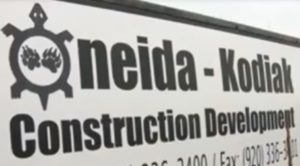 Glory, LLC changed Registered Agent w/ WDFI – previously Kevin Cornelius; currently OSGC Managing Agent Pete King III
Glory, LLC changed Registered Agent w/ WDFI – previously Kevin Cornelius; currently OSGC Managing Agent Pete King III
- Oneida-Kodiak Construction, LLC changed Registered Agent w/ WDFI
RELATED . . .
Mrs. [Sheri] Cornelius’ Class
Hello! I’m so happy to be teaching at CES [Cherokee Elementary School]! I grew up here and graduated from the Cherokee school system and I am the daughter of Lee and Peggy Jenks. I moved away and met my husband and raised our children in Green Bay WI. I then went back to to school to get my teaching degree. I knew that I wanted to return home and teach at the same school that I graduated from. I love teaching and I am really happy to be home again.
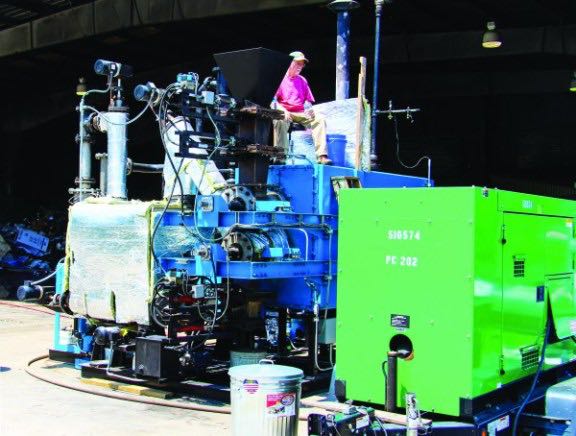
 • May 26, 2016 –
• May 26, 2016 –
Tribe looking into
waste-to-energy program
The Eastern Band of Cherokee Indians
in North Carolina is currently looking into
a waste-to-energy process known as
pyrolysis at the Tribal Transfer Station
– by Scott McKie /
Cherokee One Feather
A machine currently located at the Tribal Transfer Station off of Olivet Church Road looks like something out of “Charlie and the Chocolate Factory”, but it is the future of waste disposal and energy production according to the Tribe’s energy program coordinator.
The machine is running a two-week demonstration of pyrolysis (thermal distillation) which converts recycled bottles, old tires and other waste into a synthesis gas known as Pyrogas. “This process has been around since World War II,” said Cameron Cooper, who garnered three grants from the Department of Energy and Mineral Development for the Eastern Band of Cherokee Indians totaling over $750,000 to study this process. …
The machine that is being used for the two-week demonstration came from [Abdul Latif Mahjoob-owned] American Renewable Technologies Inc. [ARTI] based in Los Angeles. …
The second part of the grant is the two-week demonstration itself, and the third portion of the grant will allow for a prolonged demonstration and allow Cooper and staff to experiment with different feed stocks and municipal solid wastes. …
Cooper said the reason for the two-week demonstration is easy. “I wanted to bring it here for the Cherokee people to see. I want them to come out here to kick the tires so to speak. I didn’t want them to get the wrong impression that it was an incinerator. I didn’t just want to submit a business plan. I wanted people to feel it, touch it, smell it, see it.”

REALITY CHECK :
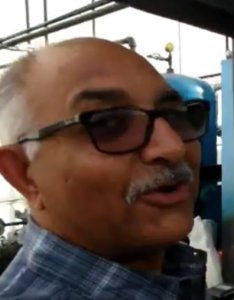
Abdul Latif Mahjoob
- December 5, 2016 Order Granting Plaintiff’s Motion to Compel Defendants Mahjoob et al. to Produce Documents, U.S. District Court, District of Nevada/Las Vegas, Case No. 2:2015CV694, CH2E Nevada LLC v. Abdul Latif Mahjoob & American Combustion Technologies Inc. / ACTI
This action arises out of a business dispute. … Plaintiff purchased specialized equipment from [Abdul Latif Mahjoob & American Combustion Technologies Inc. / ACTI], which allegedly did not perform as promised. …
Additionally, [Abdul Latif Mahjoob & ACTI] did not provide certain documents that Plaintiff asserts they were contractually required to provide. … Plaintiff therefore brought claims for fraudulent inducement, negligent misrepresentation, breach of contract, breach of warranty, and revocation…
The Court agrees with Plaintiff. Plaintiff’s complaint alleges that Defendants provided equipment that, “as designed and manufactured,” cannot “function at the levels promised and warranted by Defendants.” … The information Plaintiff seeks is relevant and necessary to determining whether manufacturing defects exist.
- November 2, 2017 CH2E Nevada LLC’s Motion for Status Conference w/ Exhibits re: “[American Combustion Technologies Inc.] ACTI’s threatened bankruptcy and fraudulent conveyances to its new company, ARTI [American Renewable Technologies Inc.]“, U.S. District Court / Nevada Case No. 15-CV-694, CH2E Nevada LLC v. [Abdul] Latif Mahjoob and American Combustion Technologies of California Inc. [ACTI]
8. CH2E believes that ACTI is filing this bankruptcy as a litigation tactic to avoid paying any judgment to CH2E. After the commencement of this litigation, ACTI’s founder, Latif Mahjoob, started a new company called American Renewable Technologies Inc. (“ARTI”). When asked about ARTI at his November 4, 2015 deposition, Dr. Mahjoob testified that ARTI was not a pyrolysis company like ACTI, but instead was a “gas to liquid fuel” company:
Q. Okay. What is American Renewable Energy [sic], Inc.?
A. It’s a company I own.
Q. What does it do?
A. It customer [sic / converts ] gas to liquid fuel. We take natural gas and turn it into liquid fuel.
Q. It’s not a pyrolysis unit – process?
A. No, not really.
[Ex. C (Mahjoob Dep. Tr.) at 174:10-16. 9.]However, publicly available information demonstrates that Dr. Mahjoob is now using ARTI to carry on the pyrolysis business of ACTI, the assets of which he is depleting in an attempt to avoid paying any judgment in this case. Indeed, ARTI is holding itself out as ACTI with respect to its experience as a pyrolysis company—including with respect to the pyrolysis equipment ACTI sold to ARTI.
See Ex. D (ARTI Website, available at
https://www.americanrenewabletech.com).
- Letter dated September 12, 2017 and ‘signed’ with rubber stamp marked ‘A.L. Mahjoob’ on behalf of American Combustion Technology Inc. and mailed to Oneida Eye Publisher Leah Sue Dodge:
Latif Mahjoob
American Combustion Technology Inc.
Compton, CA 90220
09/12/2017Dear Leah Sue Dodge:
It has come to ACTI’s attention that a defaming comment was posted on www.youtube.com under the username “Oneida Eye” that has been linked to Ms. Dodge. ACTI asks that Ms. Dodge immediately remove all comments made about Latif Mahjoob and ACTI or legal action will be taken for defamation of character. …
Your failure to remove all the defaming material will result in an immediate legal action against you.
Sincerely,
A. L. Mahjoob (rubber stamped)
Latif Mahjoob
American Combustion Technology Inc.Cc: James Kawahito, attorney.
PROBLEM:
Beyond the fact that the letter does not contain a valid signature, Oneida Eye is not aware of any companies owned by Abdul Latif Mahjoob that are named “American Combustion Technology Inc.“
The only companies owned by Abdul Latif Mahjoob that Oneida Eye is aware of include:
- Arian Engineering & Combustion Systems, Inc. [AECS] registered w/ the Illinois Sec. of State; Registered Agent & President A. Latif Mahjoob
- American Combustion Technologies, Inc. / ACTI
- American Combustion Technologies of California, Inc. / also ACTI

- American Renewable Energy Corp. / AREC in Kansas City, MO; President, Director, Treasuer – Stuart Z. Hirschman; President – Eduart Z. Itiraclussas; Secretary – Irving M. Bush; Director – A. Latif Mahjoob
- Green Peak, Inc. in Nevada; President & Director – Latif Mahjoob; Treasurer – Lila Mahjoob; Director – Daniel Rekitar; Member – Regina Kautskaya
- Q & L Holdings, LLC in California; Members – Abdul Latif Mahjoob; Qudsia Mahjoob (age 61)
Perhaps the threat letter was sent to Oneida Eye by one of Abdul Latif Mahjoob’s relatives:
- Arian Mahjoob
- Qays Mahjoob
 Related?:
Related?:
- Leagle.com: April 6, 2016 Decision, Docket No. B259878, Court of Appeals of California, Second District, The People of California v. Qays Mahjoob
![]() 04/27/18 : FILED – Brown County Case 2018-SC-2463,
04/27/18 : FILED – Brown County Case 2018-SC-2463,
Santander Consumer USA, Inc. v. Ronald H. Van Den Heuvel
04/30/18 : April 30, 2018 Order, U.S. Tax Court Docket No. 4756-15, VHC Inc. and Subsidiaries v. Commissioner of Internal Revenue Service [IRS]
05/01/18 : May 1, 2018 Ron Van Den Heuvel’s Motion for Extension of Time to File Defendant-Appellant’s Brief to June 8, 2018, U.S. 7th Circuit Court of Appeals, Appellate Case No. 18-1147, United States of America, Plaintiff-Appellee v. Ronald H. Van Den Heuvel, Defendant-Appellant
- May 1, 2018 Order Granting Ron Van Den Heuvel’s Motion for Extension of Time to File Defendant-Appellant’s Brief to June 8, 2018, U.S. 7th Circuit Court of Appeals, Appellate Case No. 18-1147, United States of America, Plaintiff-Appellee v. Ronald H. Van Den Heuvel, Defendant-Appellant
![]() 05/02/18 : May 2, 2018 Notice of New Dates & Times: Pre-Trial Motion Hearing scheduled for August 14, 2018 and Trial scheduled for September 24, 2018, U.S. District Court for the Eastern District of Pennsylvania, Case No. 15-CR-398, United States of America v. Troy Wragg, Amanda Knorr & Wayde McKelvy
05/02/18 : May 2, 2018 Notice of New Dates & Times: Pre-Trial Motion Hearing scheduled for August 14, 2018 and Trial scheduled for September 24, 2018, U.S. District Court for the Eastern District of Pennsylvania, Case No. 15-CR-398, United States of America v. Troy Wragg, Amanda Knorr & Wayde McKelvy
 05/03/18 : May 3, 2018 USA’s Unopposed Motion to Extend Deadline for Rule 404(b) Disclosure, U.S. District Court, Eastern District of Wisconsin, Case No. 17-CR-160, United States of America v. Ronald H. Van Den Heuvel
05/03/18 : May 3, 2018 USA’s Unopposed Motion to Extend Deadline for Rule 404(b) Disclosure, U.S. District Court, Eastern District of Wisconsin, Case No. 17-CR-160, United States of America v. Ronald H. Van Den Heuvel
05/04/18 : May 4, 2018 TEXT ONLY ORDER signed by Chief Judge William C. Griesbach on 5/4/2018 granting Unopposed Motion to Extend Deadline. The deadline for the government’s Rule 404(b) Disclosure is extended to 8/17/2018, U.S. District Court, Eastern District of Wisconsin, Case No. 17-CR-160, United States of America v. Ronald H. Van Den Heuvel
 05/14/18 : May 14, 2018 Joint Motion to Amend Scheduling Order, U.S. District Court, Eastern District of Wisconsin, Green Bay Division, Case No. 16-CV-1217, Oneida Nation of Wisconsin v. Village of Hobart, Wisconsin
05/14/18 : May 14, 2018 Joint Motion to Amend Scheduling Order, U.S. District Court, Eastern District of Wisconsin, Green Bay Division, Case No. 16-CV-1217, Oneida Nation of Wisconsin v. Village of Hobart, Wisconsin
05/18/18 : May 18, 2018 TEXT ONLY ORDER granting Joint Motion for extension of time by Oneida Nation of WI, signed by Chief Judge William C. Griesbach on 05/18/2018. Dispositive motions for this matter shall be filed on or before June 29, 2018, with a memorandum of law in support thereof not to exceed 55 pages, and expert witness affidavits in the form of signed expert reports and depositions taken under oath. The parties’ opposition memoranda on dispositive motions shall be filed on or before August 15, 2018, not to exceed 55 pages. The parties’ reply memoranda on dispositive motions shall be filed on or before September 7, 2018, not to exceed 30 pages. U.S. District Court, Eastern District of Wisconsin, Green Bay Division, Case No. 16-CV-1217, Oneida Nation of Wisconsin v. Village of Hobart, Wisconsin
![]() 05/24/18 : May 24, 2018 TEXT ONLY Chapter 7 Trustee’s Report of No Distribution, U.S. Bankruptcy Court / California Central District Case No. 17-bk-23617, Chapter 7, American Combustion Technologies of California Inc. /ACTI
05/24/18 : May 24, 2018 TEXT ONLY Chapter 7 Trustee’s Report of No Distribution, U.S. Bankruptcy Court / California Central District Case No. 17-bk-23617, Chapter 7, American Combustion Technologies of California Inc. /ACTI
I, Elissa Miller (TR), having been appointed trustee of the estate of the above-named debtor(s), report that I have neither received any property nor paid any money on account of this estate; that I have made a diligent inquiry into the financial affairs of the debtor(s) and the location of the property belonging to the estate; and that there is no property available for distribution from the estate over and above that exempted by law. Pursuant to Fed R Bank P 5009, I hereby certify that the estate of the above-named debtor(s) has been fully administered. I request that I be discharged from any further duties as trustee. Key information about this case as reported in schedules filed by the debtor(s) or otherwise found in the case record: This case was pending for 7 months. Assets Abandoned (without deducting any secured claims): $2,056,146.04, Assets Exempt: Not Available, Claims Scheduled: $11,049,423.32, Claims Asserted: Not Applicable, Claims scheduled to be discharged without payment (without deducting the value of collateral or debts excepted from discharge): $11,049,423.32. Filed by Trustee Elissa Miller (TR).

![]() 05/29/18 : May 29, 2018 ORDER for a SIXTH & COMPLETE Circuit Rule 3(c) Statement by Plaintiffs-Appellants Tissue Technology LLC, Partners Concepts Development Inc., Oconto Falls Tissue Inc., & Tissue Products Technology Corp., U.S. 7th Circuit Court of Appeals, Appellate Case No. 18-1835, Tissue Technology LLC, Partners Concepts Development Inc., Oconto Falls Tissue Inc., and Tissue Products Technology Corp., Plaintiffs-Appellants v. TAK Investments LLC and Sharad Tak, Defendants-Appellees
05/29/18 : May 29, 2018 ORDER for a SIXTH & COMPLETE Circuit Rule 3(c) Statement by Plaintiffs-Appellants Tissue Technology LLC, Partners Concepts Development Inc., Oconto Falls Tissue Inc., & Tissue Products Technology Corp., U.S. 7th Circuit Court of Appeals, Appellate Case No. 18-1835, Tissue Technology LLC, Partners Concepts Development Inc., Oconto Falls Tissue Inc., and Tissue Products Technology Corp., Plaintiffs-Appellants v. TAK Investments LLC and Sharad Tak, Defendants-Appellees
ORDER
This court has received appellants’ fifth attempt to file a compliant Circuit Rule 3(c) Statement. It remains inadequate. In previous orders the court required appellants for each corporate party – Partners Concepts Developments, Inc., Oconto Falls Tissue, Inc. and Tissue Products Technology Corporation – to separately list the state of incorporation and the state of each corporation’s principal place of business. Appellants still have not complied with this simple directive. It is insufficient to state that plaintiffs Partners Concepts Developments, Inc., Oconto Falls Tissue, Inc. and Tissue Products Technology Corporation “are all Wisconsin business entities.” Accordingly,
IT IS ORDERED that appellants again file a complete Circuit Rule 3(c) Statement that includes the omitted information. The statement is due on or before May 29, 2018.
- May 29, 2018 SIXTH Docketing Statement [STILL INCOMPLETE] by Plaintiffs-Appellants Tissue Technology LLC, Partners Concepts Development Inc., Oconto Falls Tissue Inc., & Tissue Products Technology Corp., U.S. 7th Circuit Court of Appeals, Appellate Case No. 18-1835, Tissue Technology LLC, Partners Concepts Development Inc., Oconto Falls Tissue Inc., and Tissue Products Technology Corp., Plaintiffs-Appellants v. TAK Investments LLC and Sharad Tak, Defendants-Appellees
The district court had jurisdiction as a civil action arising under the laws of the United States pursuant to 28 U.S.C. §1332. Jurisdiction is premised upon diversity of citizenship of the parties, to wit: Plaintiffs Tissue Technology, LLC, Partners Concepts Development, Inc., Oconto Falls Tissue, Inc. and Tissue Products Technology Corp., are all Wisconsin business entities.
Tissue Technology LLC is a Wisconsin limited liability company and a citizen of the State of Wisconsin, with its principal place of business in Wisconsin and which, at the time of filing of this lawsuit, had as its members Ronald Van Den Heuvel, Kelly Van Den Heuvel, and Daniel Platowski who are all citizens of the State of Wisconsin. A fourth member was Paul Damm, a citizen of the State of Illinois. During the pendency of this litigation, Daniel Platowski and Paul Damm forfeited their membership interests. The limited liability company was recently restructured [Footnote: Ronald Van Den Heuvel was recently convicted and sentenced on one count of Conspiracy to Commit Fraud contrary to 18 USC 371, 1344 and 1014, in the Federal Court for the Eastern District of Wisconsin, USA vs Van Den Heuvel, Case# 16-CR-64, and by which he is precluded from holding a fiduciary position which thereby mandated some restructuring.]. The members are currently as follows:
1. Green Earth America LLC, a Wisconsin limited liability company a citizen of the State of Wisconsin with its primary place of business in the State of Wisconsin. The members of Green Earth America LLC are Bernard E. Dahlin, Bernard A. Dahlin and Brian Dahlin, all citizens of the State of Wisconsin.
2. True Sustainability Trustco LLP is a limited liability partnership and a citizen of the State of Wisconsin. Its principal place of business is in the State of Wisconsin. The partners of True Sustainability Trustco LLP, are:
a. KYHK, LLC, a citizen of the State of Wisconsin with its primary place of business in the State of Wisconsin. The members of KYHK, LLC are Ronald Van Den Heuvel, Kelly Van Den Heuvel, Henry Van Den Heuvel and Kate Van Den Heuvel all citizens of the State of Wisconsin.
b. RVDH Dvlpmnt LLC, a citizen of the State of Wisconsin with its primary place of business in the State of Wisconsin. The members of RVDH Dvlpmnt, LLC are Ronald Van Den Heuvel and Kelly Van Den Heuvel, who are both citizens of the State of Wisconsin.
c. The YK Irrevocable Trust Dated November 1, 2010, which is a citizen of the State of Wisconsin and has its principal place of business in the State of Wisconsin. The Trustee of this trust is Kelly Van Den Heuvel who is a citizen of the State of Wisconsin.
d. The RVDH Family Irrevocable Trust Dates October 1, 2010, a citizen of the State of Wisconsin with its primary place of business in the State of Wisconsin. The Trustee of this Trust is Kelly Van Den Heuvel who is a citizen of the State of Wisconsin.
e. The Ron VDH Irrevocable Trust Dated September 18, 2003, a citizen of the State of Wisconsin with its primary place of business in the State of Wisconsin. The sole Trustee of this trust is Kelly Van Den Heuvel, a citizen of the State of Wisconsin.
3. KYHKJG LLC, a Wisconsin limited liability company and a citizen of the State of Wisconsin with its primary place of business in the state of Wisconsin and whose members are Ronald Van Den Heuvel, Kelly Van Den Heuvel, Henry Van Den Heuvel, Kate Van Den Heuvel and Ron Van Den Heuvel all citizens ofthe State of Wisconsin.
4. HHKRK, LLC LLC, a Wisconsin limited liability company and a citizen of the State of Wisconsin with its primary place of business in Wisconsin and whose members are Kelly Van Den Heuvel, Henry Van Den Heuvel, Kate Van Den Heuvel, Hayden Van Den Heuvel and Ron Van Den Heuvel all citizens ofthe State of Wisconsin.
Defendant Tak Investments LLC is a Delaware limited liability company and a citizen of Delaware with its principal place of business in the State of Maryland. Defendant Sharad Tak is a Florida citizen, however, he has been dismissed from the lawsuit and this appeal does not concern him – only Tak Investments LLC. The members of Tak Investments, LLC are Sharad Tak, a citizen of the State of Florida and Mahinder Tak, a citizen of the State of Maryland.
This lawsuit involves four promissory notes with the principal amounts of $4,000,000.00; $3,000,000.00; $4,000,000.00; and $5,000,000.00, along with interest which were issued following the sale of a paper mill located in Oconto Falls, Wisconsin. There is also an associated “Final Business Terms Agreement” that was executed contemporaneously. The amount in controversy exceeds $75,000.00. …
Dated at Milwaukee, Wisconsin this 29th day of May, 2018.
TERSCHAN, STEINLE, HODAN & GANZER, LTD.
ATTORNEYS FOR PLAINTIFFS,
BY: /s/ MICHAEL J. GANZER
STATE BAR NO. 1005631
![]()
![]()
![]()
![]() 05/30/18 : May 30, 2018 SEVENTH Amended Docketing Statement [STILL INCOMPLETE] by Plaintiffs-Appellants Tissue Technology LLC, Partners Concepts Development Inc., Oconto Falls Tissue Inc., & Tissue Products Technology Corp., U.S. 7th Circuit Court of Appeals, Appellate Case No. 18-1835, Tissue Technology LLC, Partners Concepts Development Inc., Oconto Falls Tissue Inc., and Tissue Products Technology Corp., Plaintiffs-Appellants v. TAK Investments LLC and Sharad Tak, Defendants-Appellees
05/30/18 : May 30, 2018 SEVENTH Amended Docketing Statement [STILL INCOMPLETE] by Plaintiffs-Appellants Tissue Technology LLC, Partners Concepts Development Inc., Oconto Falls Tissue Inc., & Tissue Products Technology Corp., U.S. 7th Circuit Court of Appeals, Appellate Case No. 18-1835, Tissue Technology LLC, Partners Concepts Development Inc., Oconto Falls Tissue Inc., and Tissue Products Technology Corp., Plaintiffs-Appellants v. TAK Investments LLC and Sharad Tak, Defendants-Appellees
- May 30, 2018 Docket Entry Notification of May 30, 2018 Status Hearing reset to July 26, 2018, U.S. District Court, Northern District of Illinois, Eastern Division, Docket No. 17-CV-108, RNS Servicing, LLC v. Spirit Construction Services, Inc., Steven Van Den Heuvel, ST Paper, LLC and Sharad Tak
![]() 06/04/18 : June 4, 2018 Ron Van Den Heuvel’s Motion for Extension of Time to File Defendant-Appellant’s Brief to July 9, 2018, U.S. 7th Circuit Court of Appeals, Appellate Case No. 18-1147, United States of America, Plaintiff-Appellee v. Ronald H. Van Den Heuvel, Defendant-Appellant
06/04/18 : June 4, 2018 Ron Van Den Heuvel’s Motion for Extension of Time to File Defendant-Appellant’s Brief to July 9, 2018, U.S. 7th Circuit Court of Appeals, Appellate Case No. 18-1147, United States of America, Plaintiff-Appellee v. Ronald H. Van Den Heuvel, Defendant-Appellant
- June 4, 2018 Order Granting Ron Van Den Heuvel’s Motion for Extension of Time to File Defendant-Appellant’s Brief to July 9, 2018, U.S. 7th Circuit Court of Appeals, Appellate Case No. 18-1147, United States of America, Plaintiff-Appellee v. Ronald H. Van Den Heuvel, Defendant-Appellant
06/08/18: June 8, 2018 Order, U.S. Tax Court Docket No. 21583-15, VHC Inc. and Subsidiaries v. Commissioner of Internal Revenue Service [IRS]
06/12/18 : Milwaukee Business Journal: Green Bay Packaging Inc. to invest $500M for new recycled paper mill, expansion
Green Bay Packaging Inc. [GBPI] is planning to spend more than $500 million to build a new recycled paper mill in Green Bay and expand its shipping container division in a project that’s expected to create 200 jobs throughout the state.
The Wisconsin Economic Development Corp. [WEDC] is working with the Green Bay-based company on a state tax credit award of about $60 million to support the investment, Wisconsin Gov. Scott Walker and company officials said Tuesday. …
In addition to building the new mill, the company will invest $25 million in the expansion of its Green Bay Shipping Container Division. In May, Green Bay Packaging announced the acquisition of Wisconsin Packaging Corp., a Fort Atkinson manufacturer of corrugated packaging and displays. Green Bay Packaging plans to continue to operate and grow the Fort Atkinson facility in the future.
Green Bay Packaging [Inc. / GBPI] has announced plans to build a new $500 million facility, the largest business development project in Brown County’s history. …
Groundbreaking is scheduled for September 2018 at the site on North Quincy Street. The goal is to finish the mill within two years.
The plan must first pass the Green Bay City Council. …
It’s also the first new paper mill in Wisconsin in over 30 years.
“Huge project for us, by far the biggest thing we’ve ever done in the history of our company,” said William Kress, Green Bay Packaging [Inc.]President/CEO. “It’s kind of a leap of faith. I will tell you that it makes me a little nervous, it’s a lot of money, but we are fortunate to have a lot of good bankers on our side to help us through this, and we will carry on.” …
The company is also touting the new facility’s environmental upgrades. The coal boiler will be replaced with two natural gas boilers to reduce fuel emissions. The plant will also use a reclaimed water system that will not put wastewater into the Fox River or the Bay, according to Green Bay Packaging [Inc. / GBPI].
- USA TODAY / Green Bay Press-Gazette: Green Bay Packaging Inc. to expand local operation, add up to 200 jobs, invest over $580M
[GBPI President/CEO William] Kress announced the expansion Tuesday morning. He was joined by Gov. Scott Walker, Brown County Executive Troy Streckenbach and Green Bay Mayor Jim Schmitt, who announced government incentives totaling almost $90 million for the project.
“This is a big risk for them and we’re going to share some of it with them,” Schmitt said. …
Wisconsin Economic Development [Corp. / WEDC] CEO Mark Hogan said the state will provide $60 million in enterprise zone tax credits tied to job retention and creation. Streckenbach said the county will spend $5.3 million on infrastructure to create a Fox River papermaking corridor in the area.
Green Bay Economic Development Director Kevin Vonck said the city will create a new tax incremental financing district for the project that’s projected to rebate up to $23 million in property taxes to the company once the new mill is built. Schmitt said the city also would deed its evidence storage building, located near Green Bay Packaging’s Quincy Street mill, to the company as well.
[Green Bay Packaging Inc. Executive Vice President Bryan] Hollenbach said the 2½-year construction phase means time is of the essence. The city, county and state all expect to review funding requests by the end of June, and Hollenbach said the company hopes Miron Construction will begin construction in September.
The company says it will replace its facility-wide coal boiler with two natural gas boilers, reducing fuel emissions of sulfur dioxide and particulate matter emissions by more than 90%.
Green Bay Packaging [Inc.] says it will also partner with NEW Water, Green Bay’s local metropolitan water treatment facility, to construct a reclaimed water system that utilizes treated wastewater for production and does not discharge any wastewater back into the Fox River or Bay of Green Bay.
06/14/18 : WLUK – Fast-track votes begin for Green Bay Packaging Inc. incentives
In the joint committee meeting, Brown County supervisors agreed a $5.3 million investment is worth it to keep Green Bay Packaging [Inc.] and its 1,100 jobs in the area. The full county board is expected to vote on the deal next week. …
One concern a couple supervisors expressed was the timing of the project. They say it would have helped to have more notice to have some of their questions answered and to hear from constituents.
“I was disappointed and really would have preferred that they at least allowed a month’s time to pass,” said [Brown County Supervisor James] Kneiszel. …
Bryan Hollenbach, Executive Vice President of Green Bay Packaging [Inc.], says negotiations between the company and the county started in March.
In addition to Brown County’s contribution, the city of Green Bay plans to kick in $23 million in TIF assistance. The state plans to provide $60 million in tax credits.
Green Bay Packaging [Inc.] says it is vital for all three groups to pass the incentive deals before June 30th.
“We have to look at it from a business point of view,” said Hollenbach. “We have to move very fast. If we don’t get this paper machine on order, this project is going to be delayed significantly.”
Company leaders say the paper machine order is nearly half of the $500 million investment it is making, and the order won’t happen until the incentive deals are secured. …
The goal is to break ground in September and start operations in the new facility in 2021.
- USA TODAY / Green Bay Press-Gazette –
Brown County supervisors recommend OK on $5.3M in aid to $580M Green Bay Packaging Inc. expansion
A group of Brown County supervisors on Thursday recommended approval of $5.3 million in in-kind contributions to a $580 million expansion proposed by Green Bay Packaging Inc.
[S]everal supervisors complained that they were voting on a project for which they had been given only two days’ notice, and one they must give final approval next week.
…De Pere Supervisor Jim Kneiszel [said] “I don’t understand why we couldn’t have at least a month.”
“We just have to trust in the administration,” said Wrightstown Supervisor John Van Dyck. …
Aid package
• COUNTY: Brown County would spend $5.3 million on infrastructure to create a Fox River papermaking corridor.
• CITY: Green Bay would create a tax-incremental-financing district that would return up to $23 million in property taxes to the company once the new mill opens. The city also will deed its evidence-storage building, near the company’s Quincy Street mill, to the company.
• STATE: Wisconsin would provide $60 million in enterprise zone tax credits.Approvals needed
• Green Bay Packaging [Inc.] has asked local and state government to fast-track the project so it can order machinery, and break ground in September. That means there will be several meetings in the coming days to seek approvals.
• Green Bay’s Redevelopment Authority will meet at 1:30 p.m. Friday to review the development agreement. City Council will vote on the agreement Tuesday night.
• The 26-member Brown County Board will be asked to approve the county’s $5.3 million in-kind contribution on Wednesday night.
• The Wisconsin Economic Development Corp. [WEDC] board of directors will be asked to act on the state’s $60 million in incentives at its board meeting on June 29.


06/20/18 : Plastics Recycling Update: Plastics-to-oil fraudster & Envion executive Michael Han convicted for tax evasion
A former plastics-to-oil CEO has been convicted of tax evasion for failing to pay taxes on $14 million he obtained by defrauding investors, according to prosecutors.
A federal jury found Michael Sang Han guilty of two counts of tax evasion in U.S. District Court for the District of Columbia last month. Han served as president and CEO of Envion, a plastics-to-oil (PTO) company launched in 2004.
“Han convinced two individuals to invest nearly $40 million in his company, then used more than $14 million of that money to fund a lavish personal lifestyle,” according to a release from the U.S. Department of Justice.
Envion, which was active in Washington, D.C., Virginia and Florida over the years, claimed to have a patent for a machine dubbed the “EZ Oil Generator,” capable of converting plastics to oil. The company was profiled by several media outlets when Envion unveiled its pilot equipment in 2009. …
In subsequent years, investors grew dubious of the company’s claims, according to a grand jury indictment originally filed in 2015 and updated in 2017. The investors had put money into the company based on its claims that it owned the PTO patent and technology, according to the indictment. But they later learned Envion did not have such a patent, and it did not have the capacity to produce its technology during the period they were investing.
Envion is no longer operating (an unrelated company now operates using that name).
Prosecutors said Han used the money from investors to purchase a house in Palm Beach, Fla. complete “extravagant renovations and internal decorations,” take flights on private jets and acquire luxury cars. …
High-profile investor
One of the investors was former U.S. Secretary of Defense Frank Carlucci, who served in the Reagan Administration. Carlucci began investing in Envion in 2004, and over the years invested $32 million into the company, according to a lawsuit he later filed against Han and the company.According to the suit, Han told Carlucci that high-profile investors including former presidents Bill Clinton and George W. Bush, Warren Buffett and Bill Gates were interested in the company. …
Carlucci was awarded $37 million in a 2013 judgment. Some of Han’s assets were sold in response to the judgment, including the home in Palm Beach that sold for $5.35 million. Carlucci died earlier this month at 87.
06/28/18 : WBAY: Foxconn buying WaterMark building for Green Bay innovation center
![]() 07/02/18 : July 2, 2018 Status Report re Bankruptcy of Defendant American Combustion Technologies of California, Inc., U.S. District Court / Nevada Case No. 2:15-cv-694, CH2E Nevada LLC v. [Abdul] Latif Mahjoob and American Combustion Technologies of California Inc. [ACTI]
07/02/18 : July 2, 2018 Status Report re Bankruptcy of Defendant American Combustion Technologies of California, Inc., U.S. District Court / Nevada Case No. 2:15-cv-694, CH2E Nevada LLC v. [Abdul] Latif Mahjoob and American Combustion Technologies of California Inc. [ACTI]
CLICK HERE FOR TIMELINE PART 14
- CLICK HERE FOR TIMELINE PART 12
- CLICK HERE FOR TIMELINE PART 11
- CLICK HERE FOR TIMELINE PART 10
- CLICK HERE FOR TIMELINE PART 9
- CLICK HERE FOR TIMELINE PART 8
- CLICK HERE FOR TIMELINE PART 7
- CLICK HERE FOR TIMELINE PART 6
- CLICK HERE FOR TIMELINE PART 5
- CLICK HERE FOR TIMELINE PART 4
- CLICK HERE FOR TIMELINE PART 3
- CLICK HERE FOR TIMELINE PART 2
- CLICK HERE FOR TIMELINE PART 1
